Special Report
50 Most Dangerous Volcanoes in America
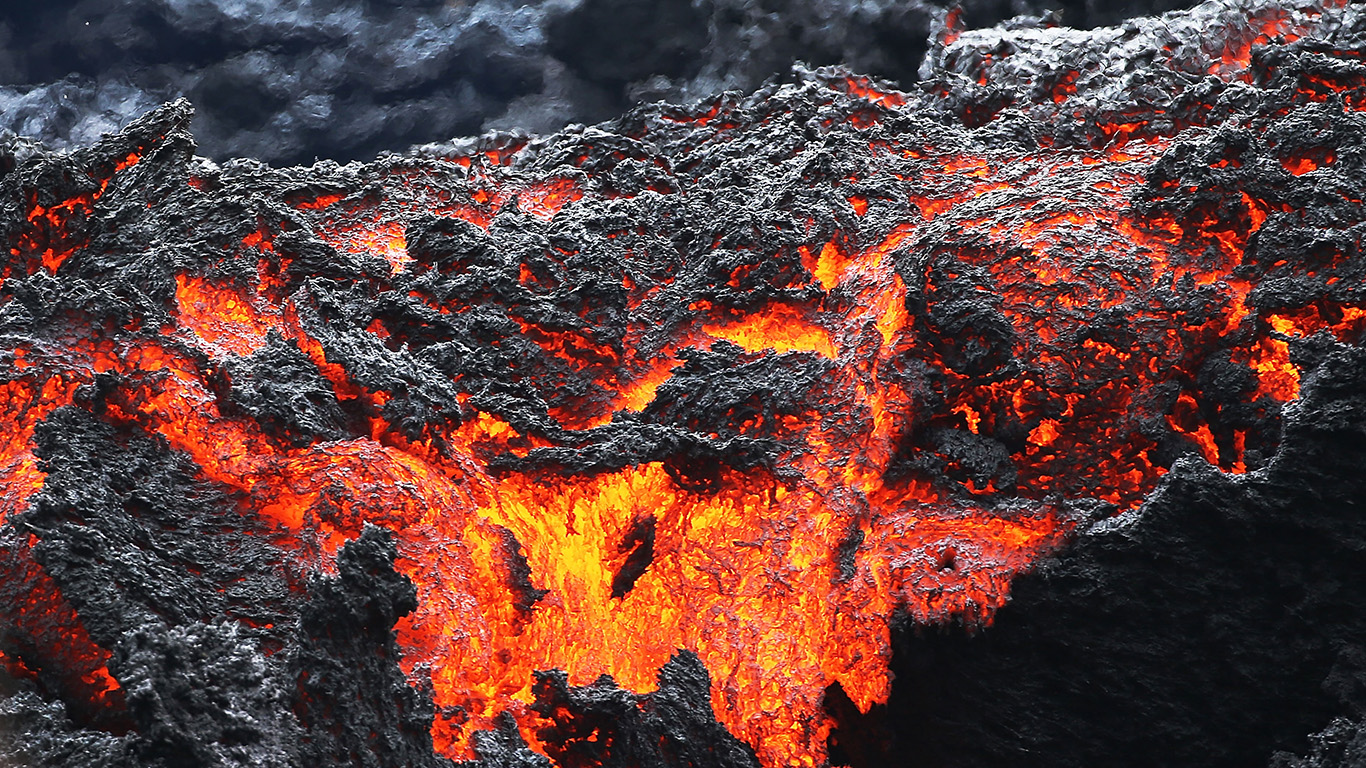
Published:
Last Updated:

While most people do not live in close proximity to an active volcano, those who do must live with the lingering threat of eruption. Volcanic eruptions take place across the globe — including in the United States — and are often extremely destructive. Just last year, Hawaii’s Kilauea volcano erupted for three months, producing enough magma to fill approximately 320,000 swimming pools and destroying 700 homes.
Volcanic activity is not unforeseeable, however, and advancements in gas emission sensors, seismometers, aerial GPS, radar systems and other monitoring instruments have revolutionized the science of predicting eruptions. With such tools deployed on Kilauea, ground swells were detected before the most recent explosion, giving emergency responders several days of warning. According to Charlie Mandeville, volcanologist and director of the U.S. Geological Survey, it is possible now to predict major eruptions weeks or months ahead of time.
Despite technological advancements, predicting volcanic eruptions is not a perfect science and volcanoes continue to pose a threat to many as some of the world’s worst weather events. Approximately 800 million people live within 60 miles of an active volcano in more than 80 countries around the world. There are also 169 active volcanoes in the United States, threatening even cities with the best weather. Based on the latest USGS estimations of volcanic threat level, 24/7 Wall St. ranked these domestic volcanoes from lowest to greatest level of potential threat.
Threat scores of 123-324 are considered very high; scores of 64-113 are considered high; and scores of 30-63 are considered moderate. Threat levels take into account both the estimated likelihood of an eruption, based on eruption history and geological studies, as well as the possible damages based on population density and surrounding infrastructure. The threat levels of the 50 most dangerous volcanoes are all either high or very high and could result in life-changing natural disasters.
Click here to see the 50 most dangerous volcanoes in America.
Click here to see our detailed findings and methodology.
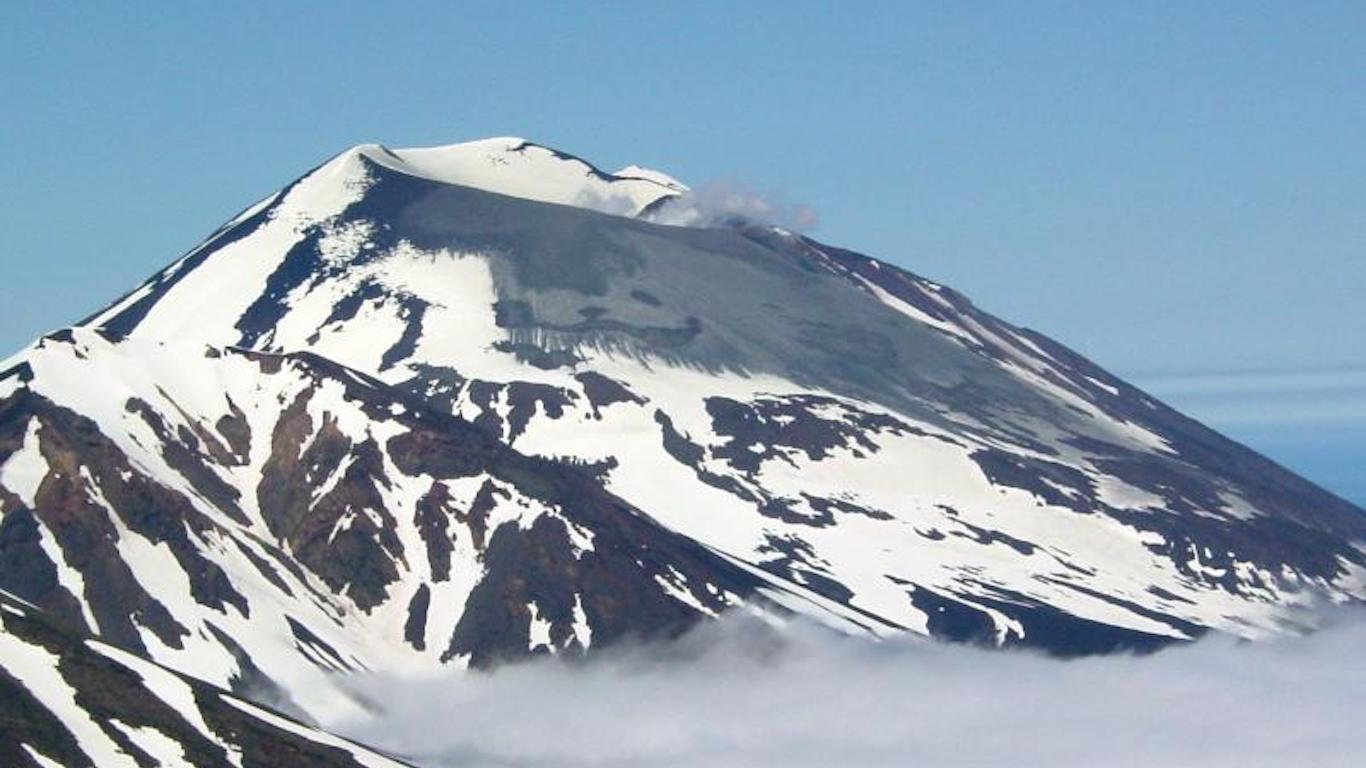
[in-text-ad]
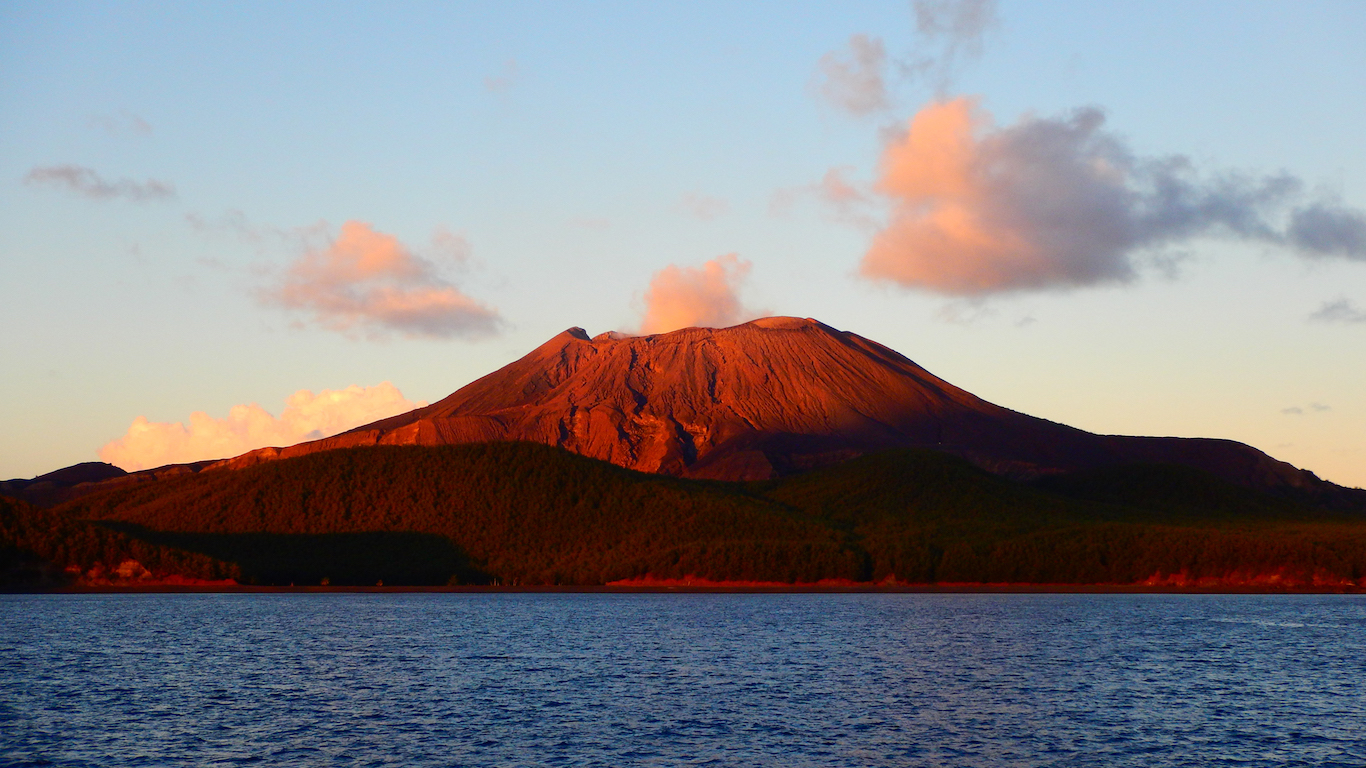
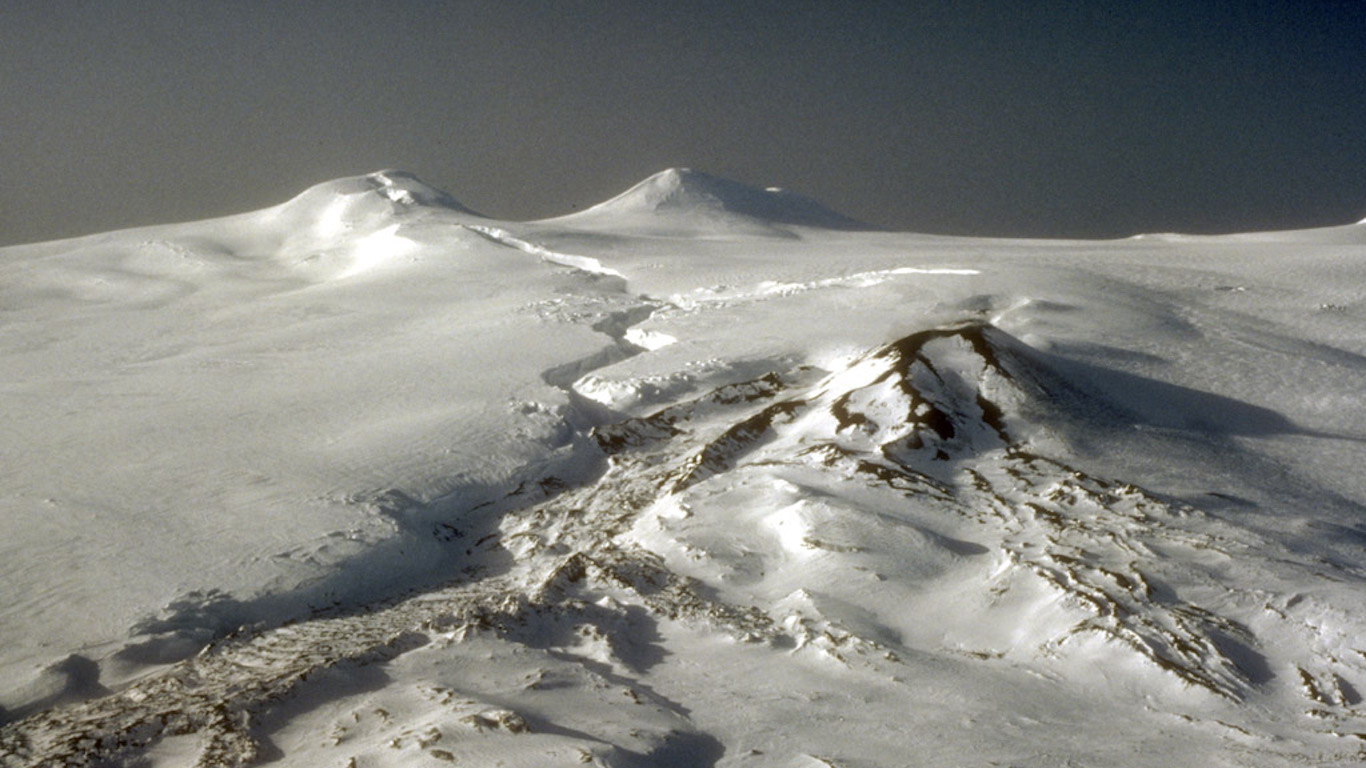
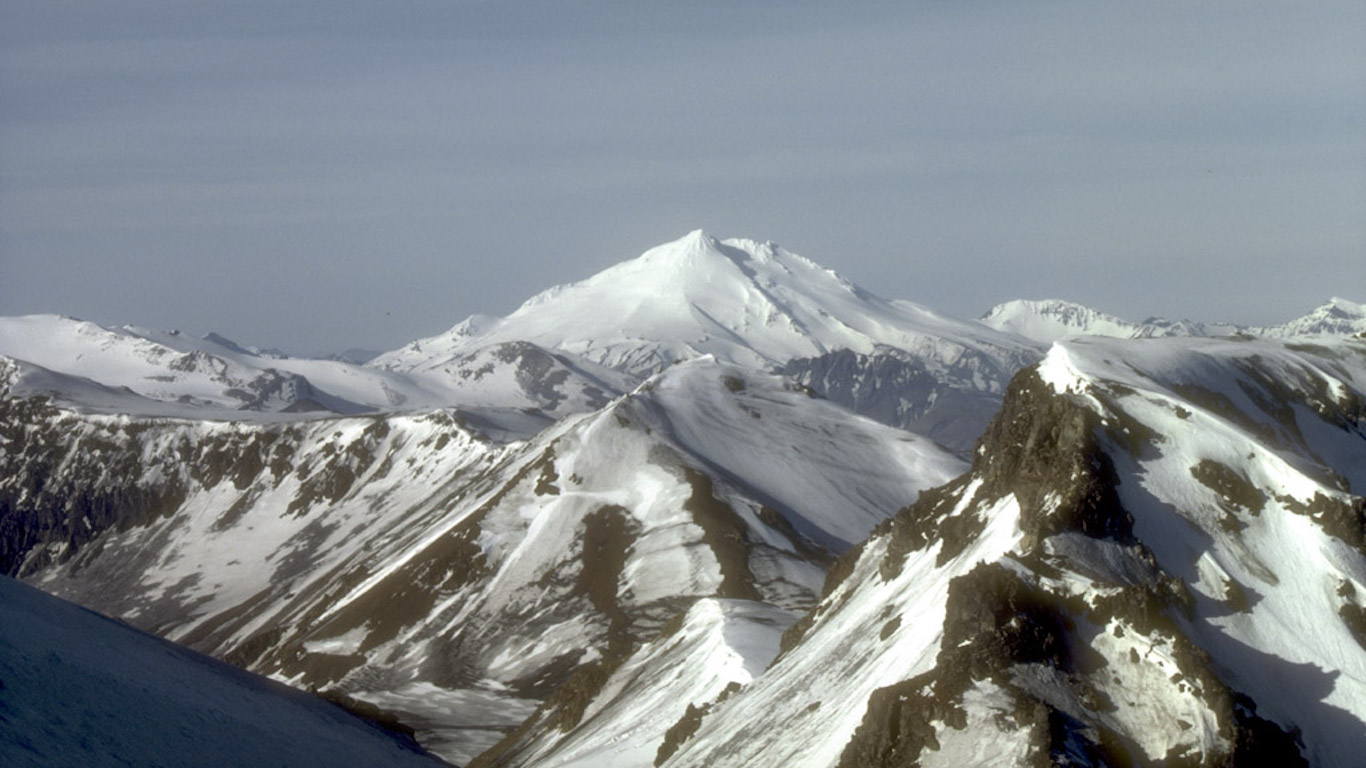
[in-text-ad-2]
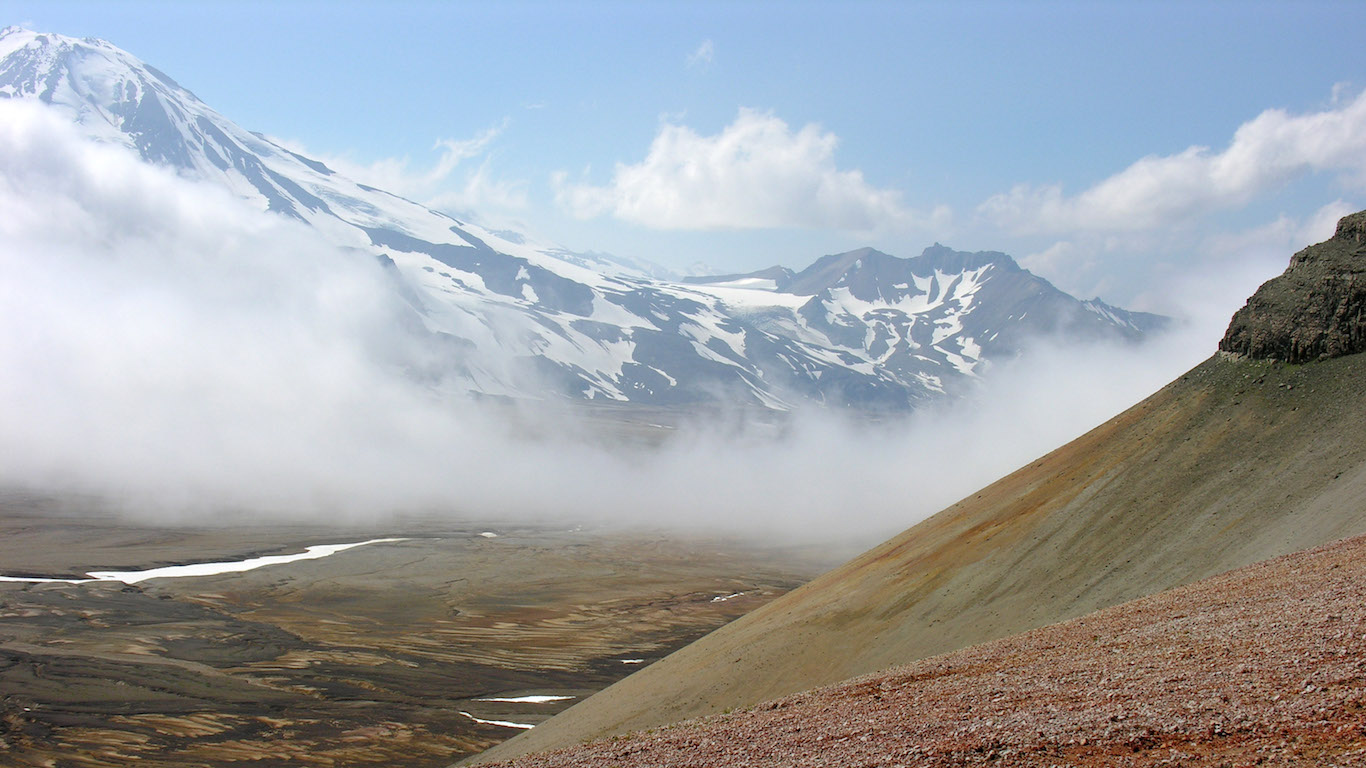
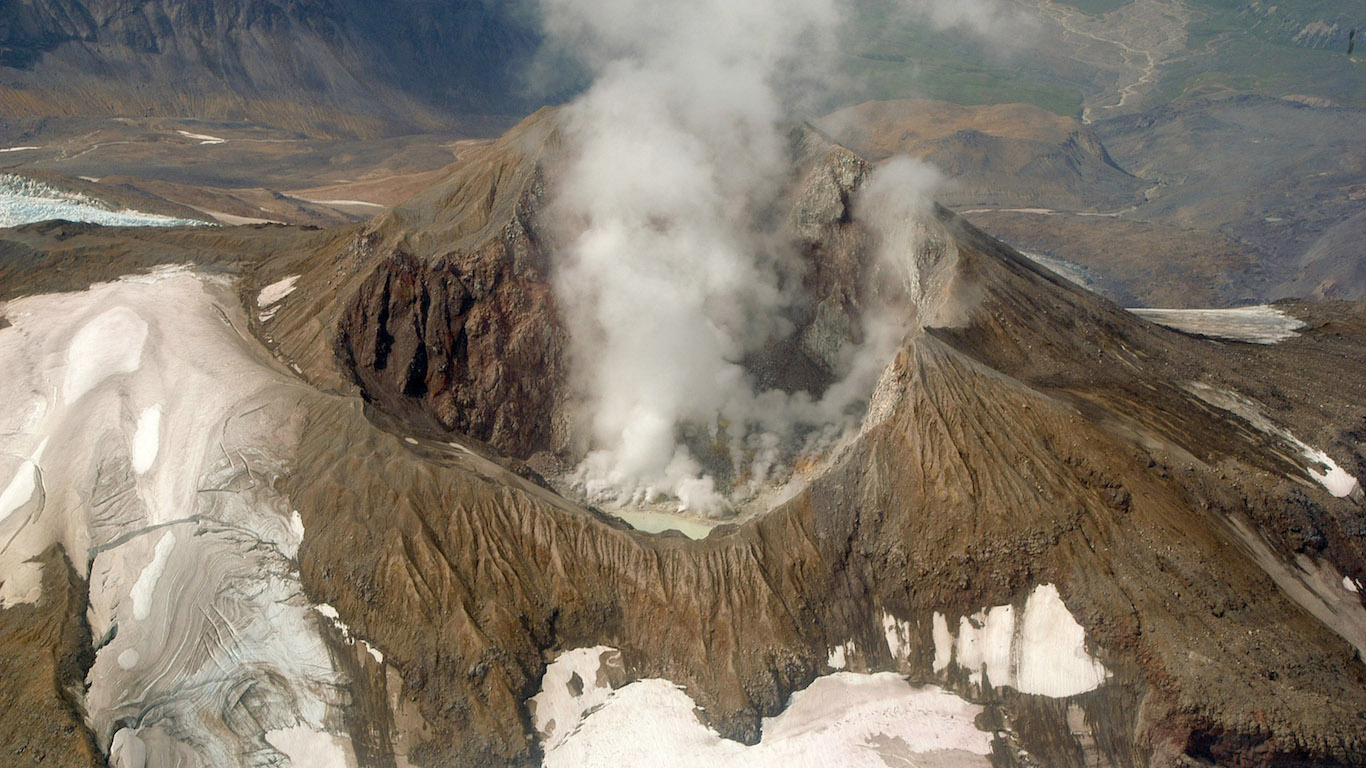
[in-text-ad]
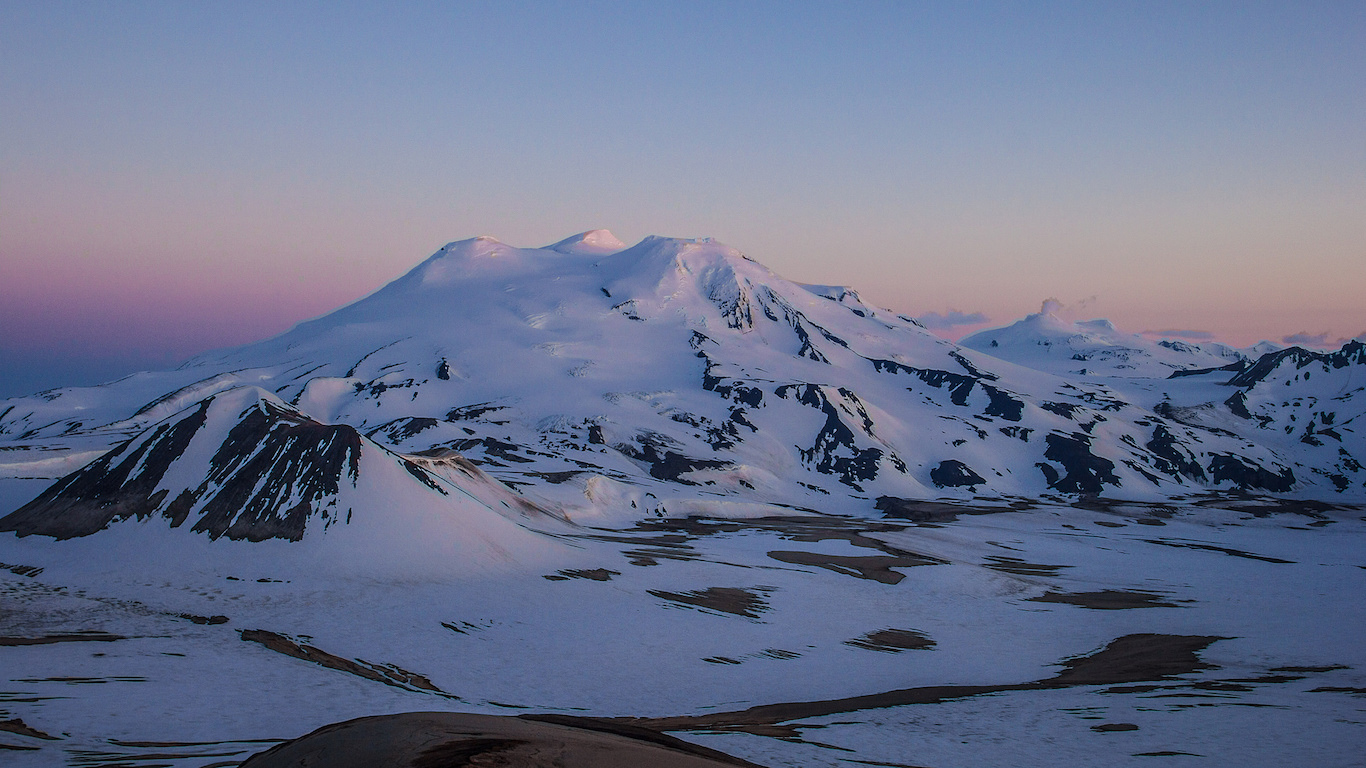
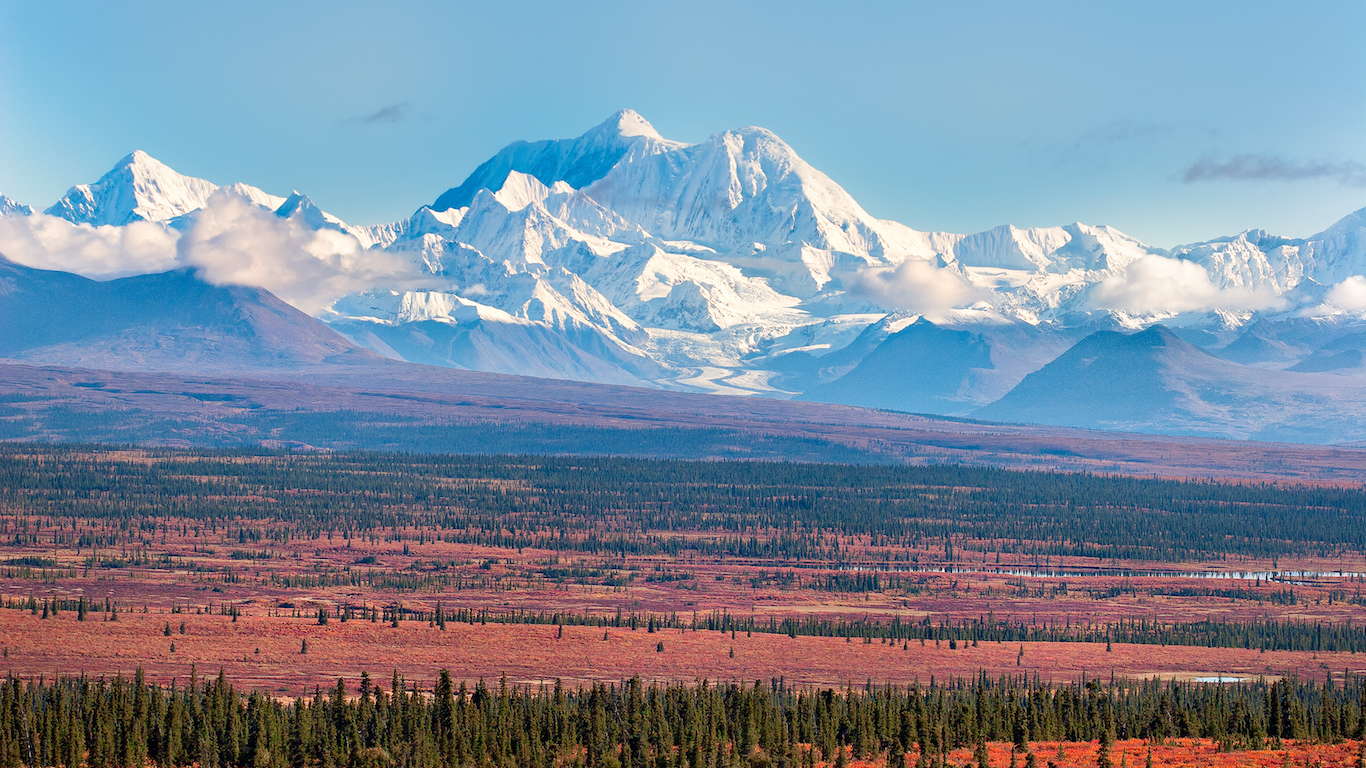
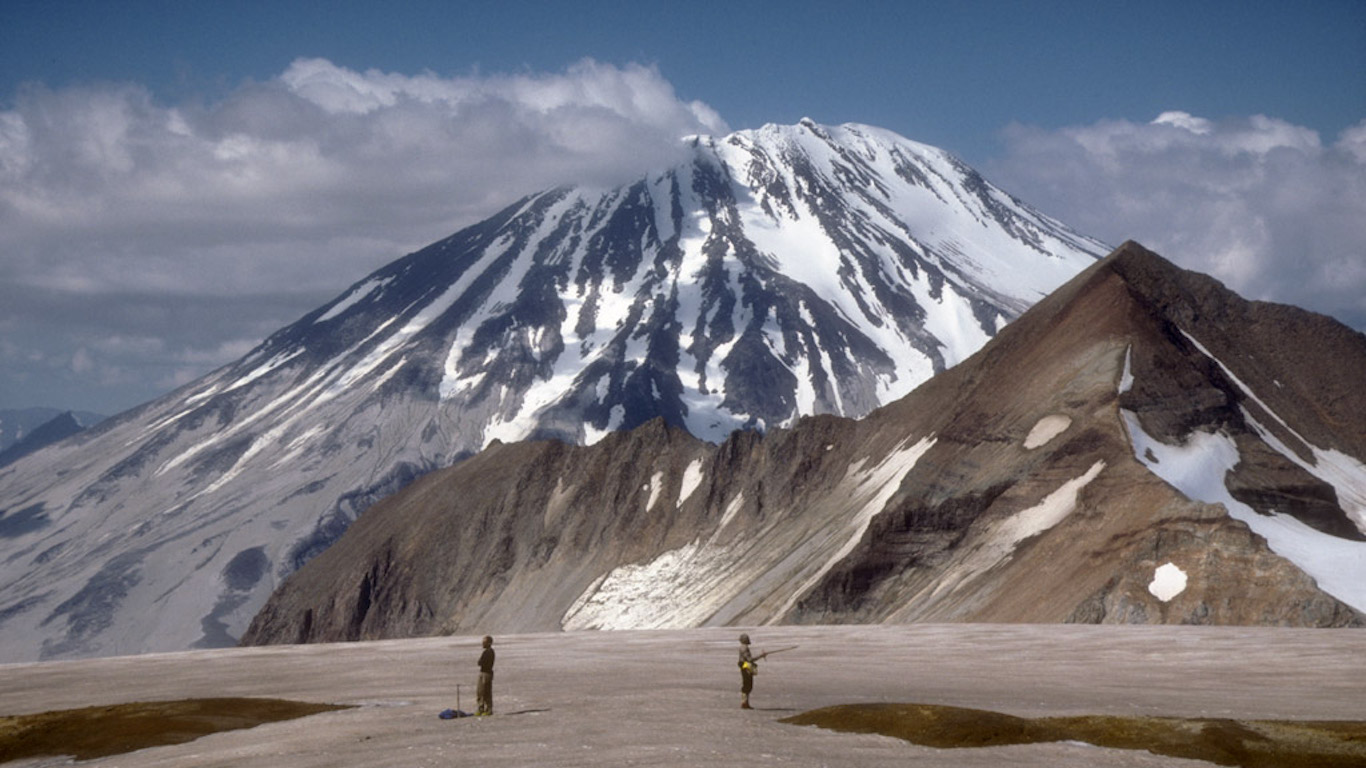
[in-text-ad-2]
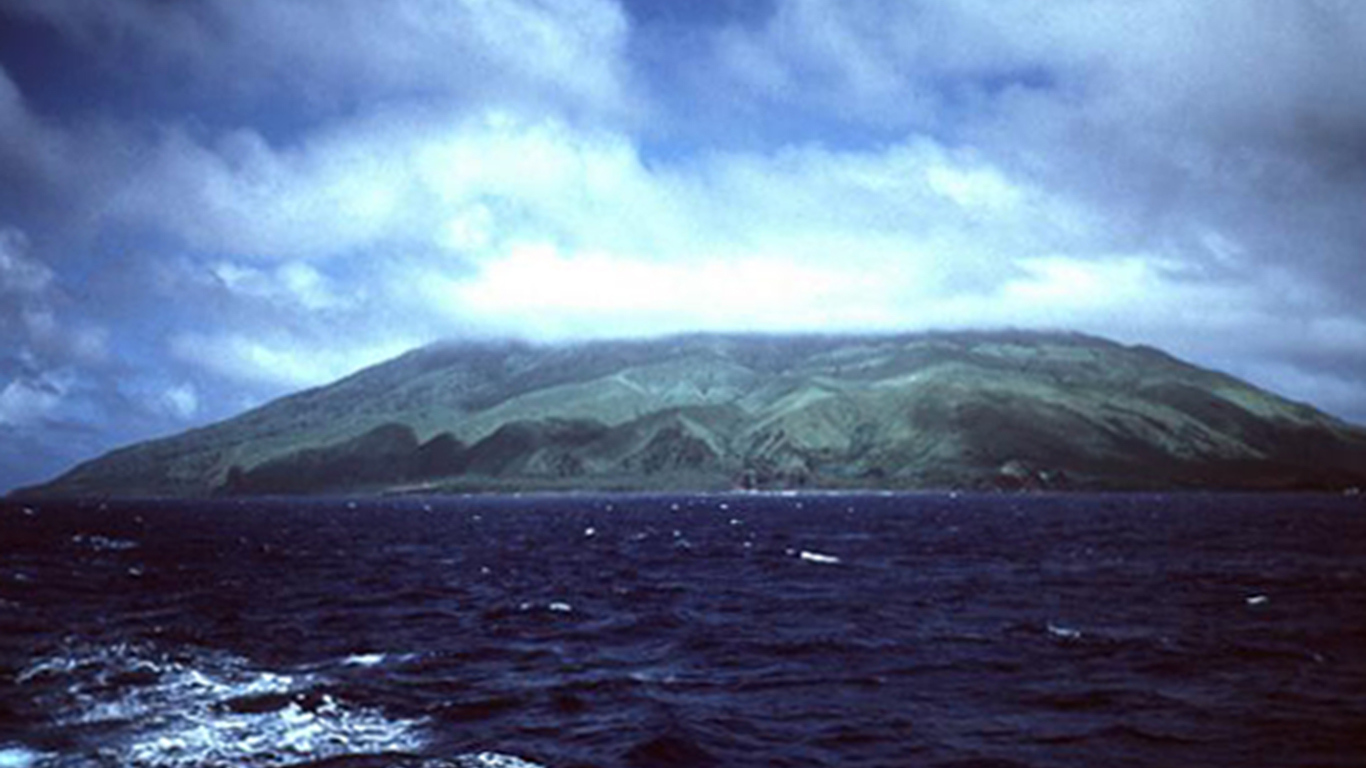
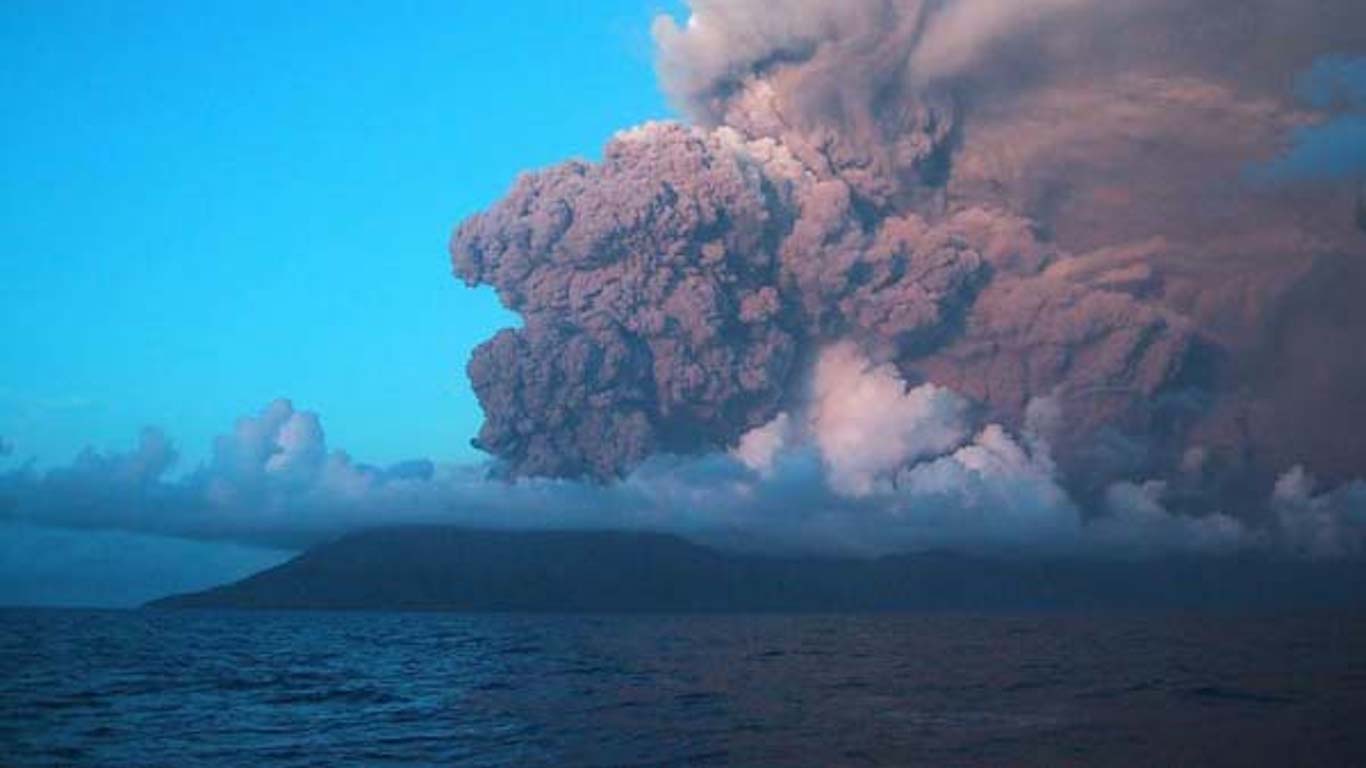
[in-text-ad]
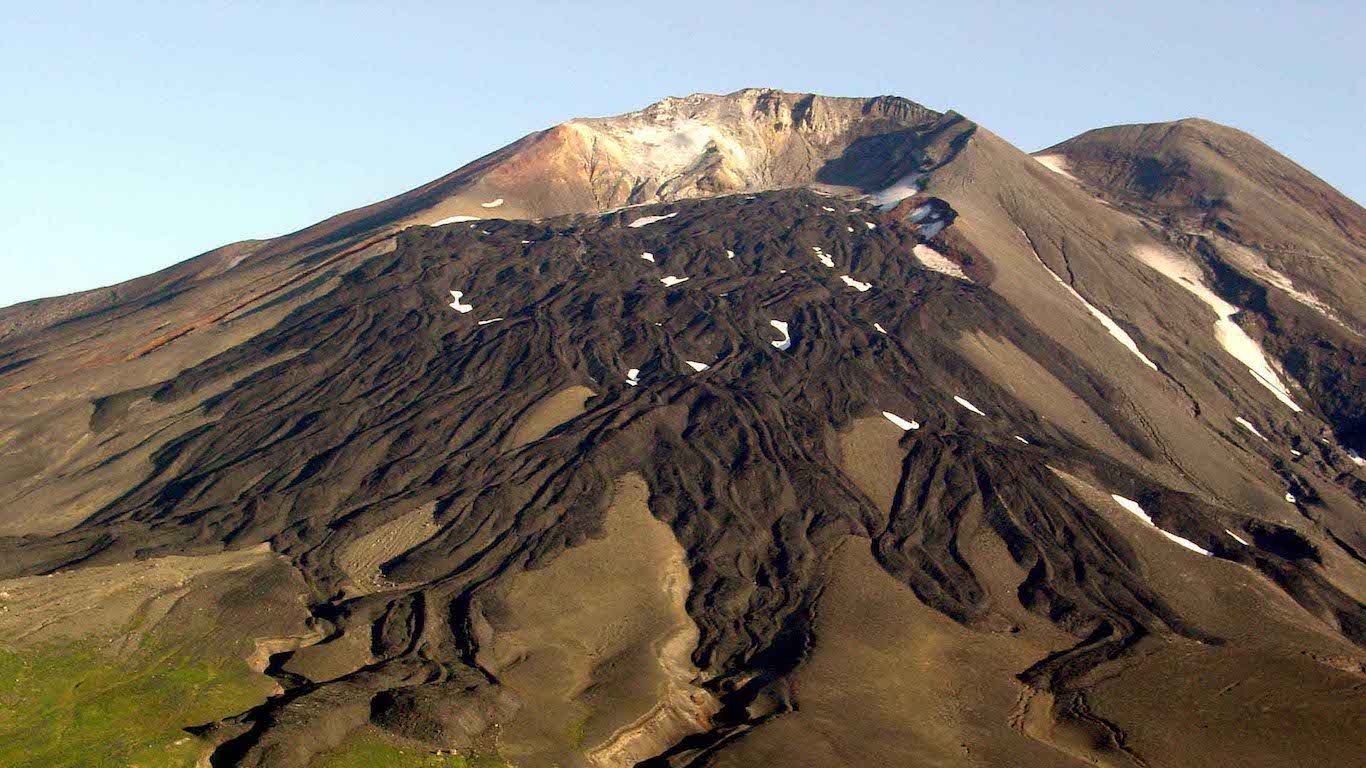
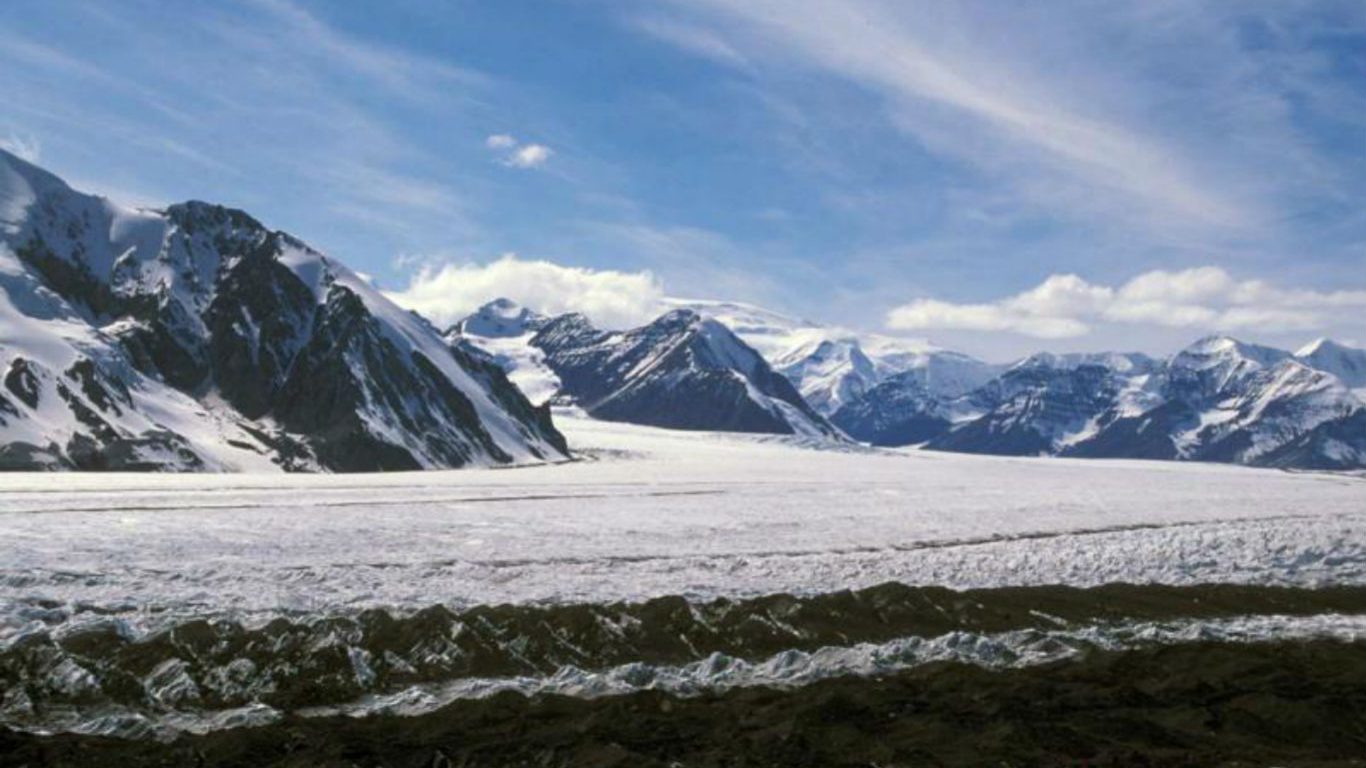
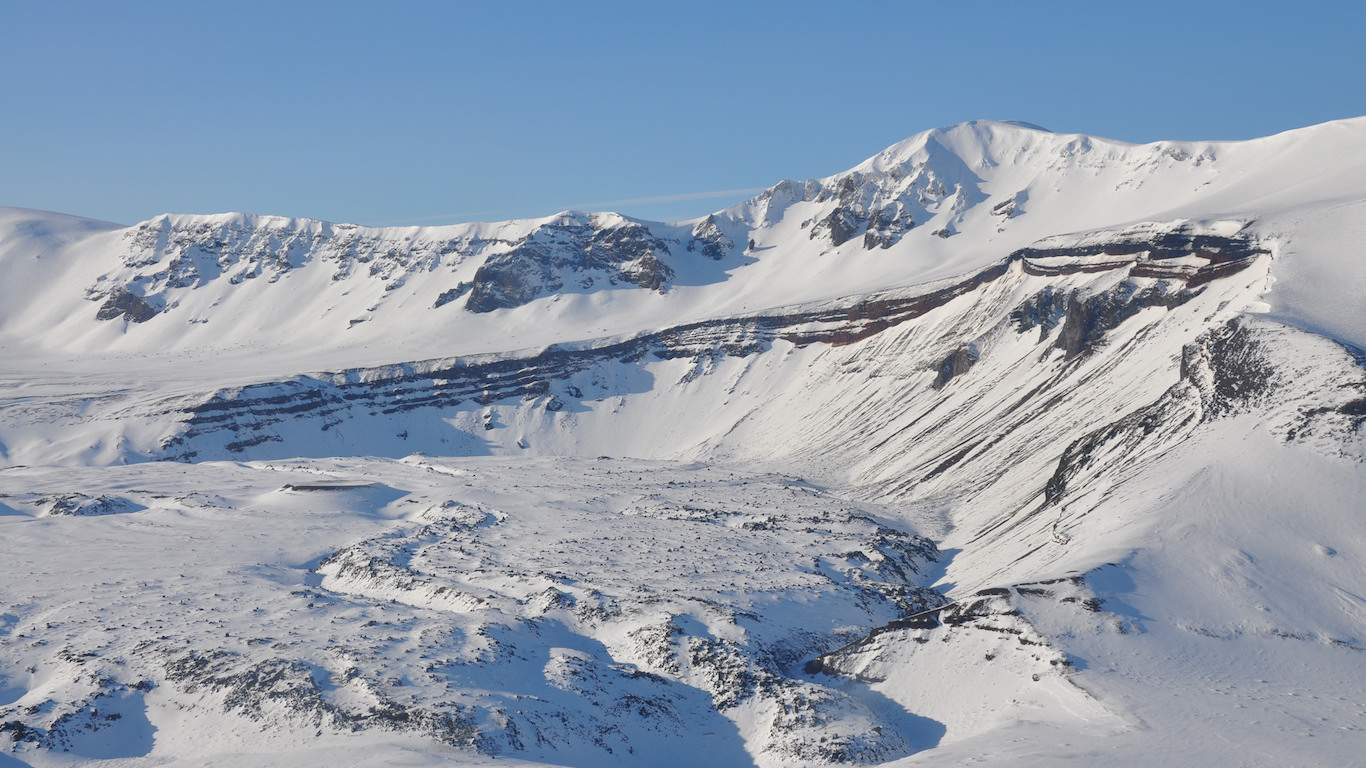
[in-text-ad-2]
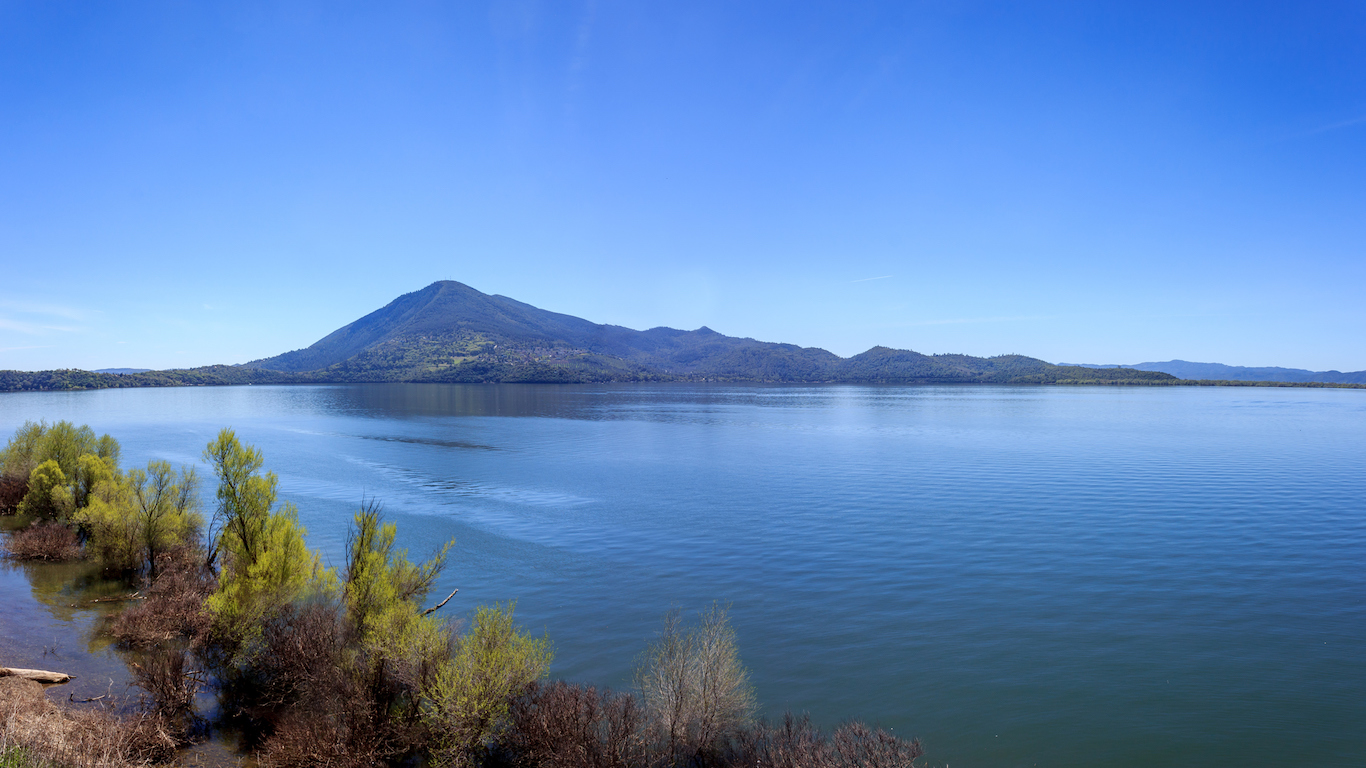
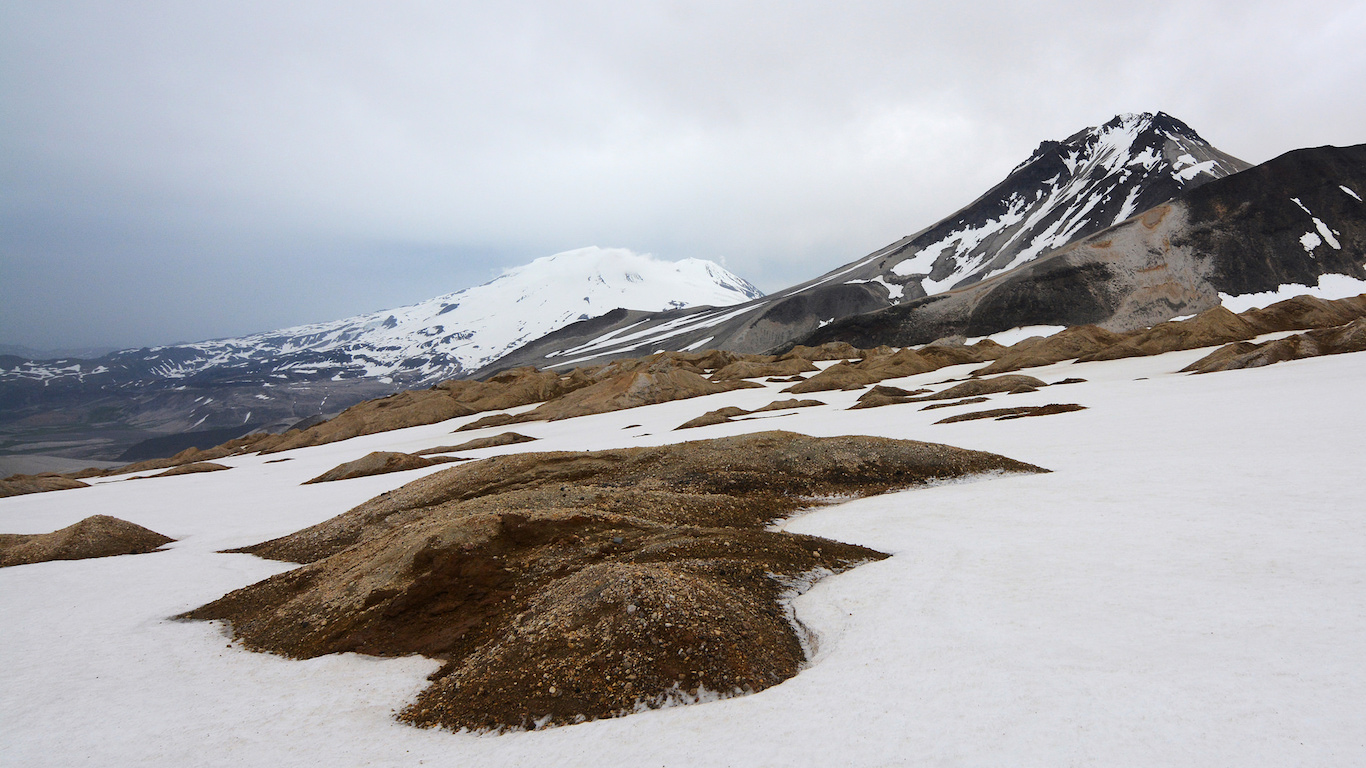
[in-text-ad]
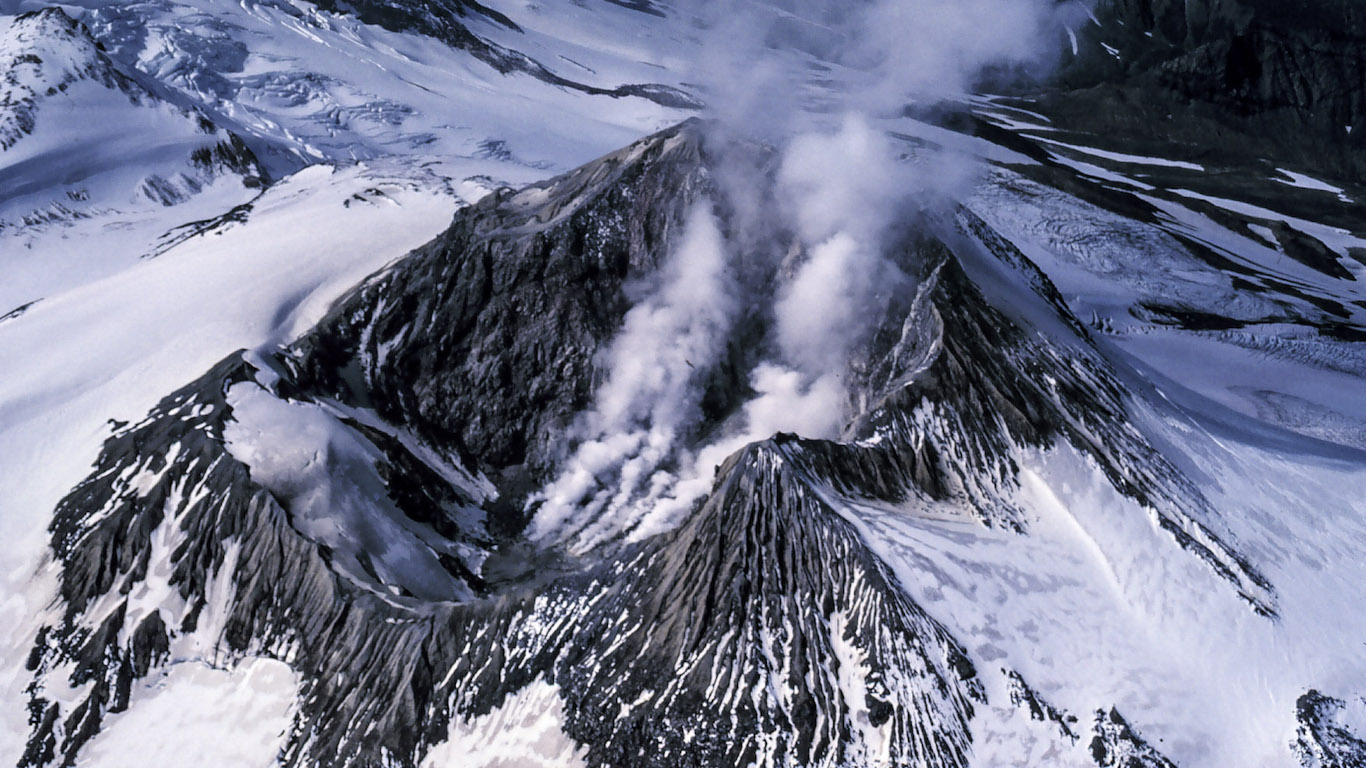
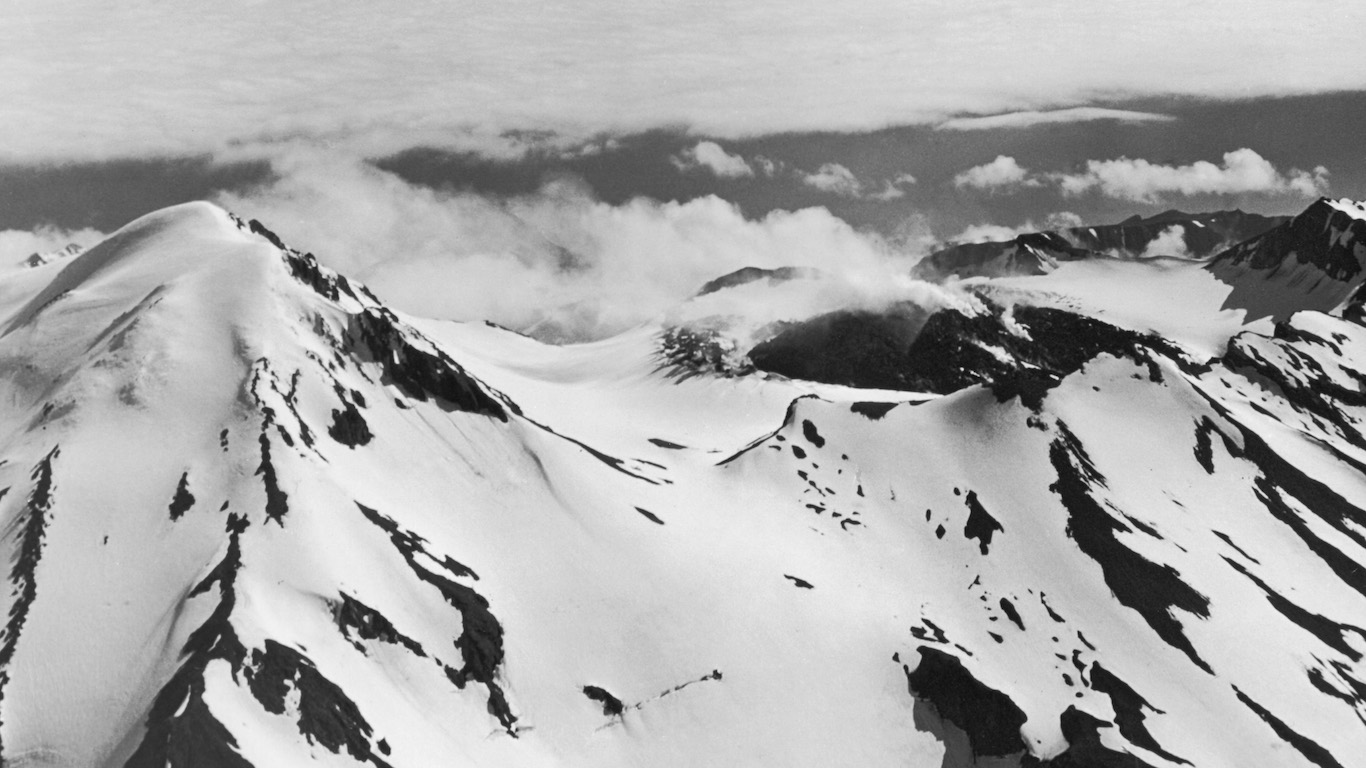
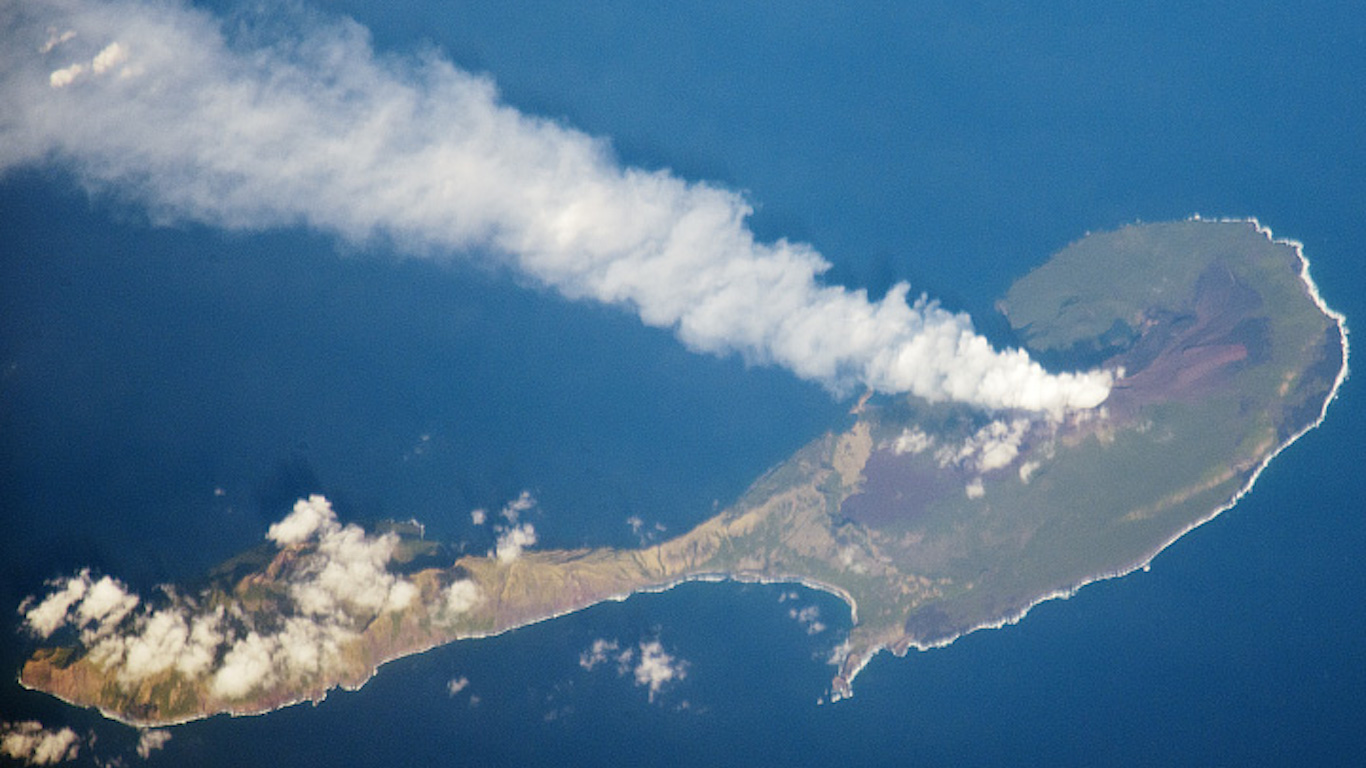
[in-text-ad-2]
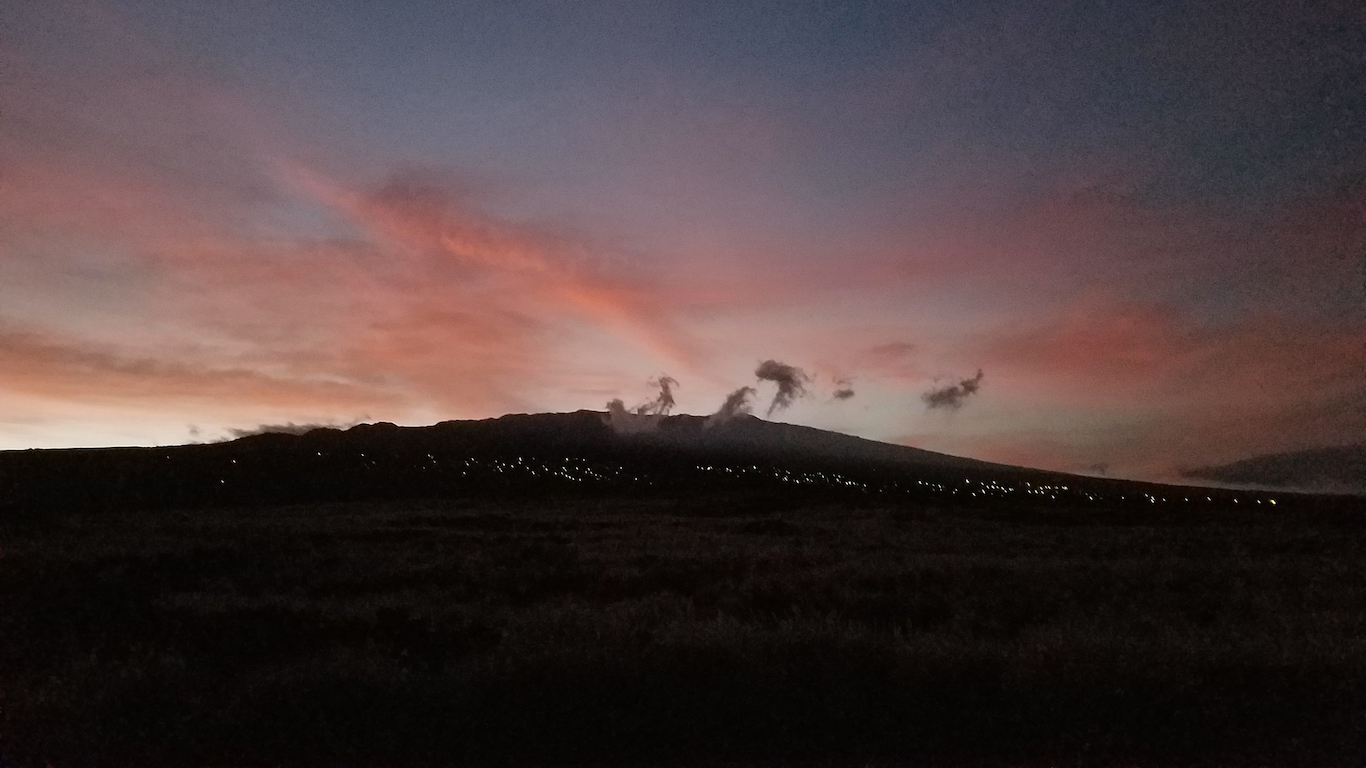
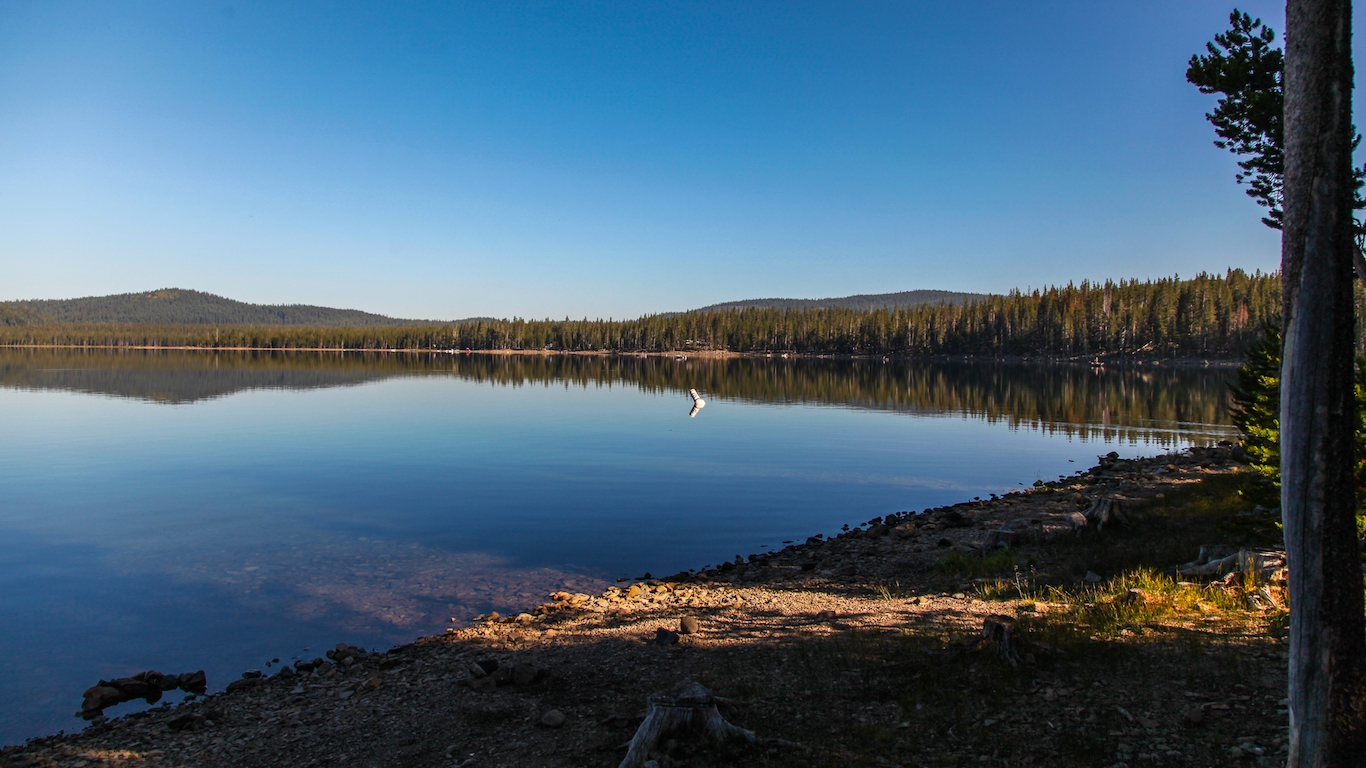
[in-text-ad]
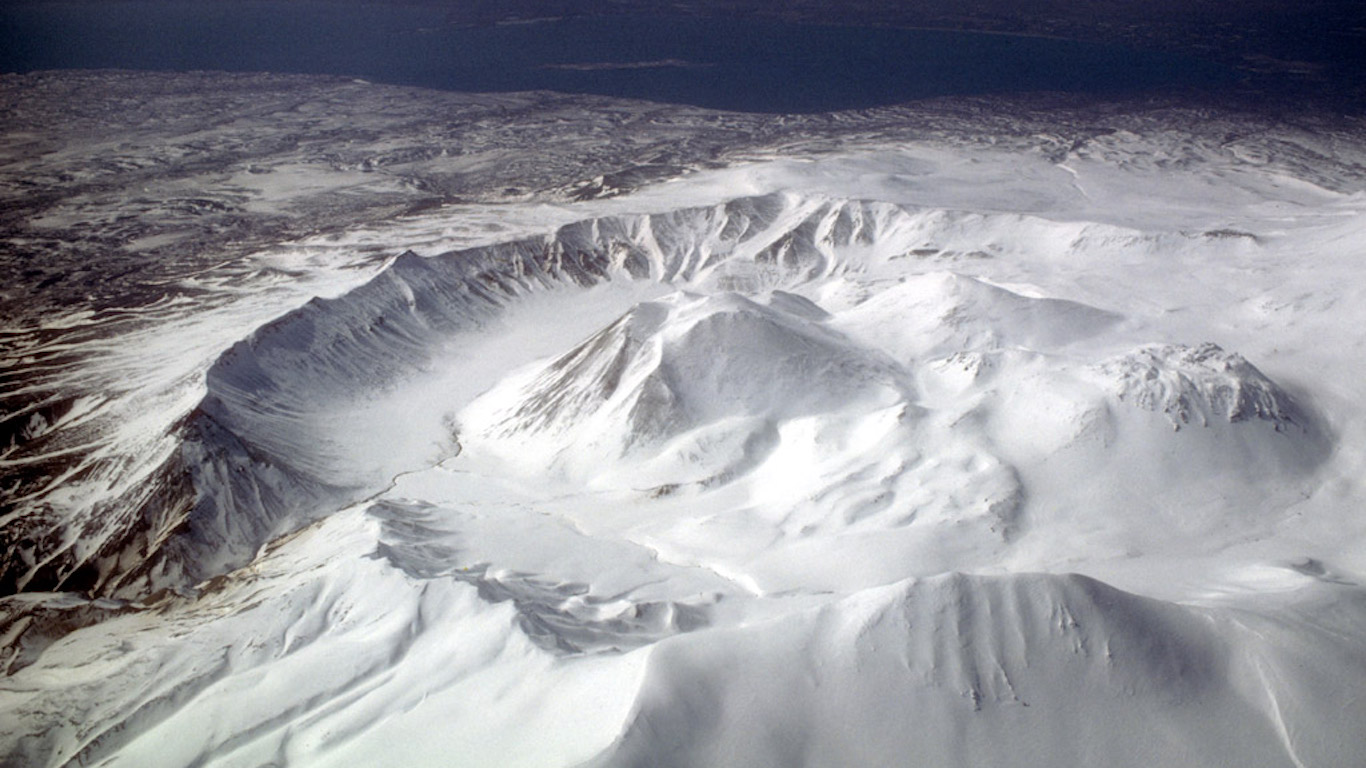
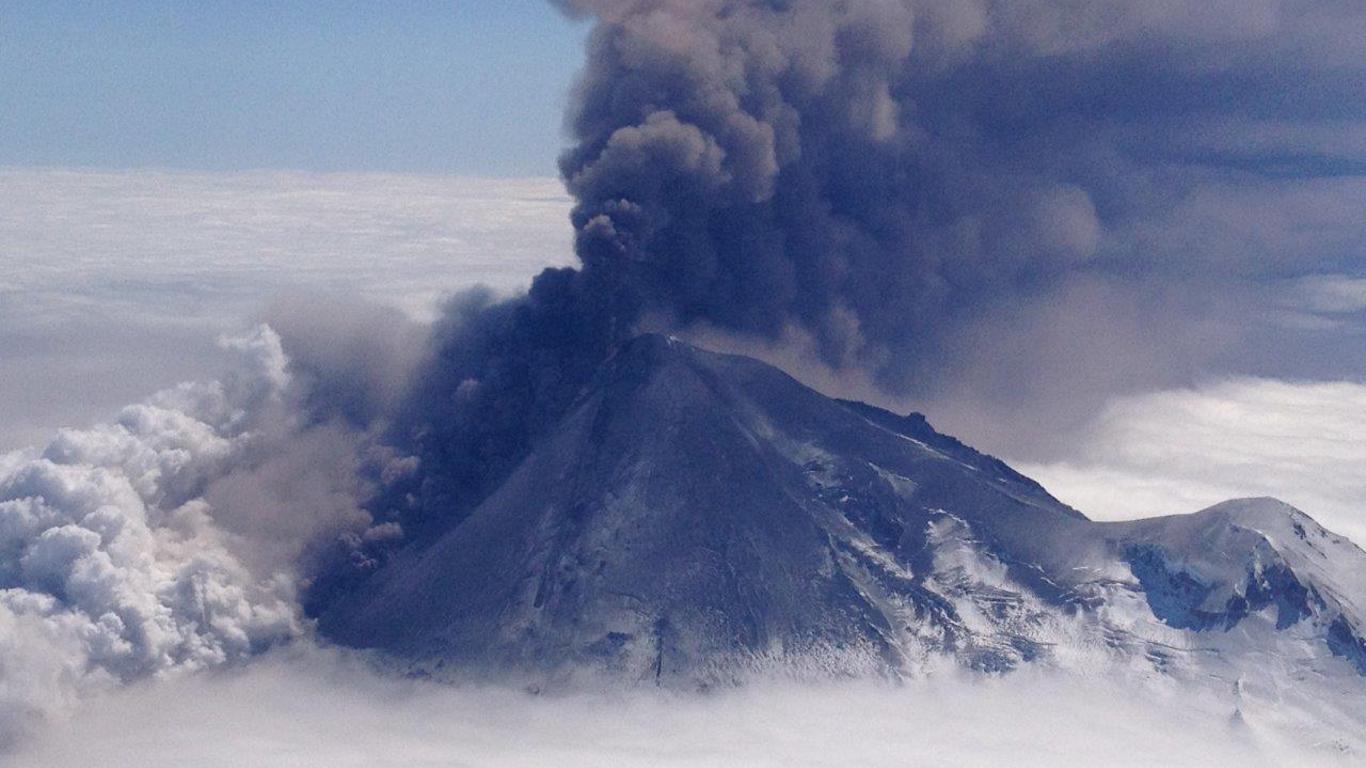
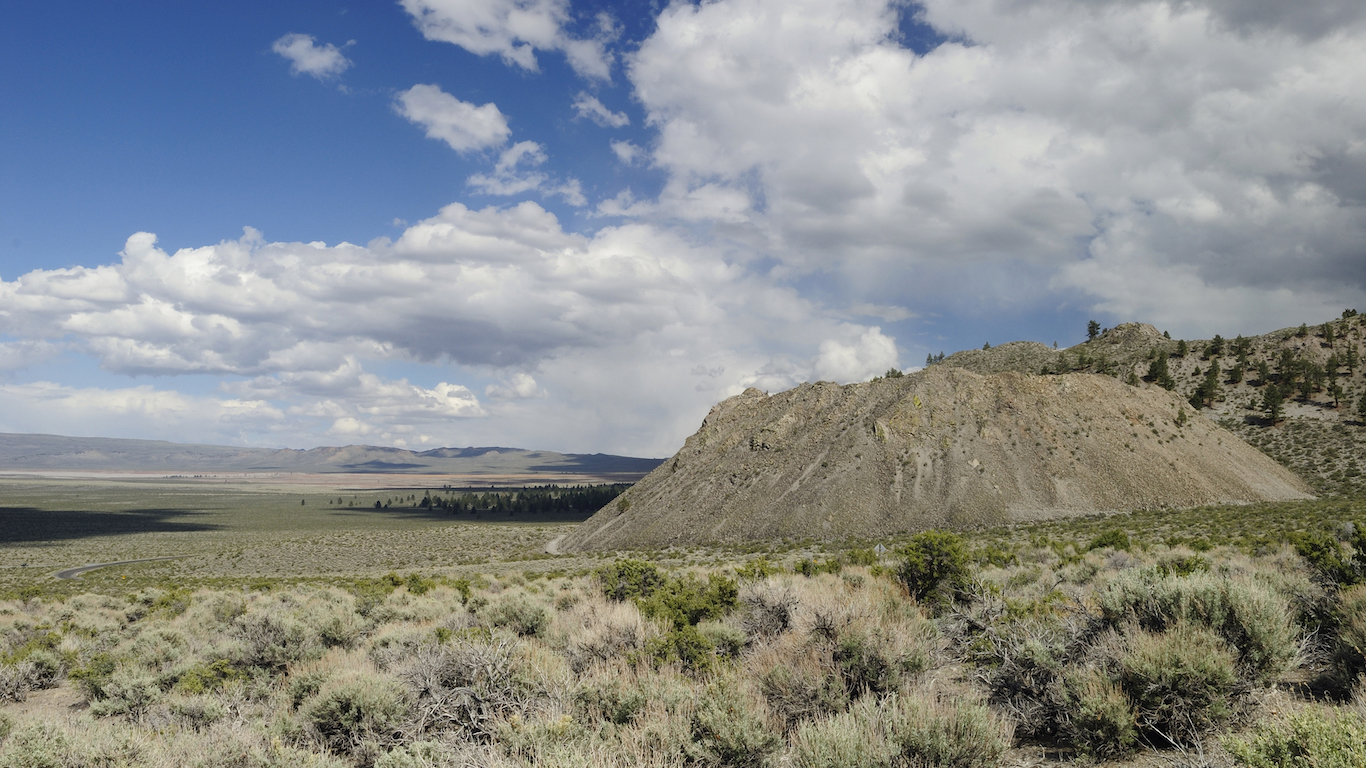
[in-text-ad-2]
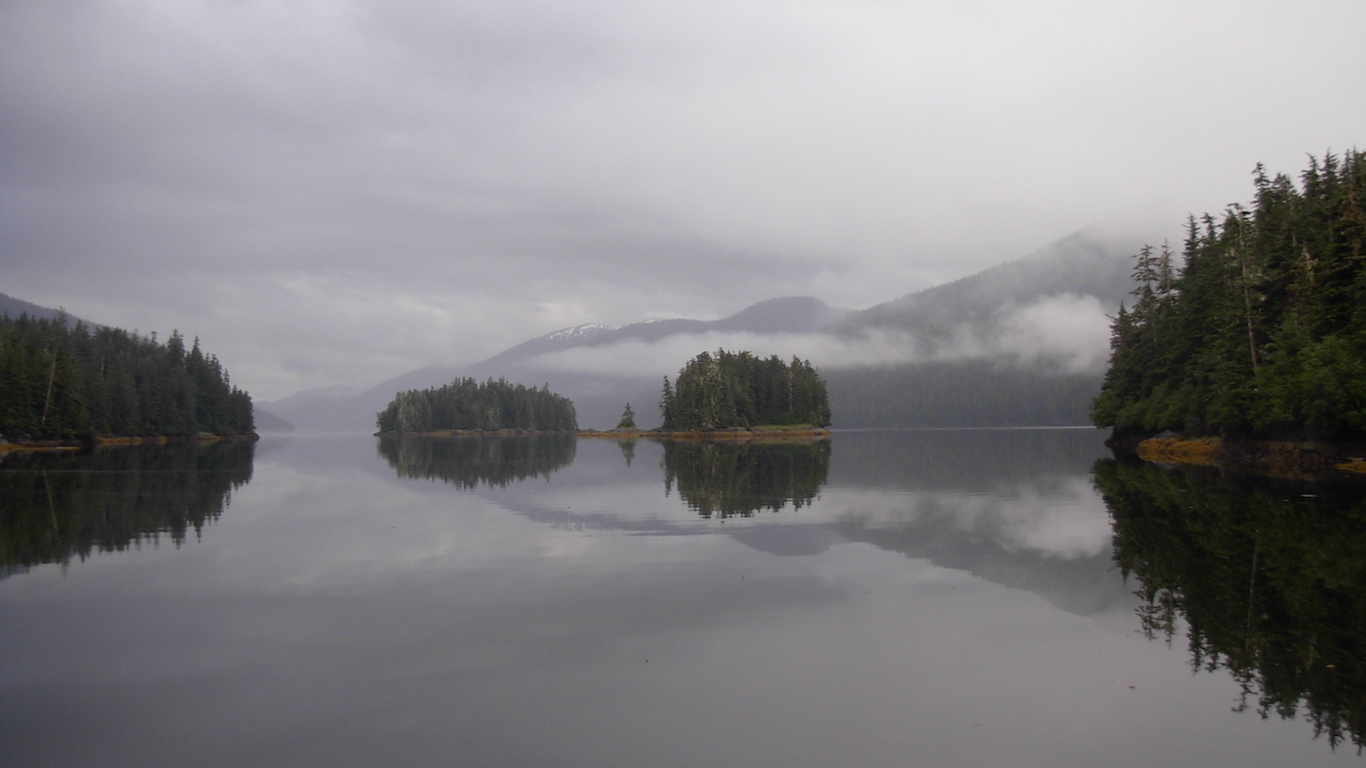
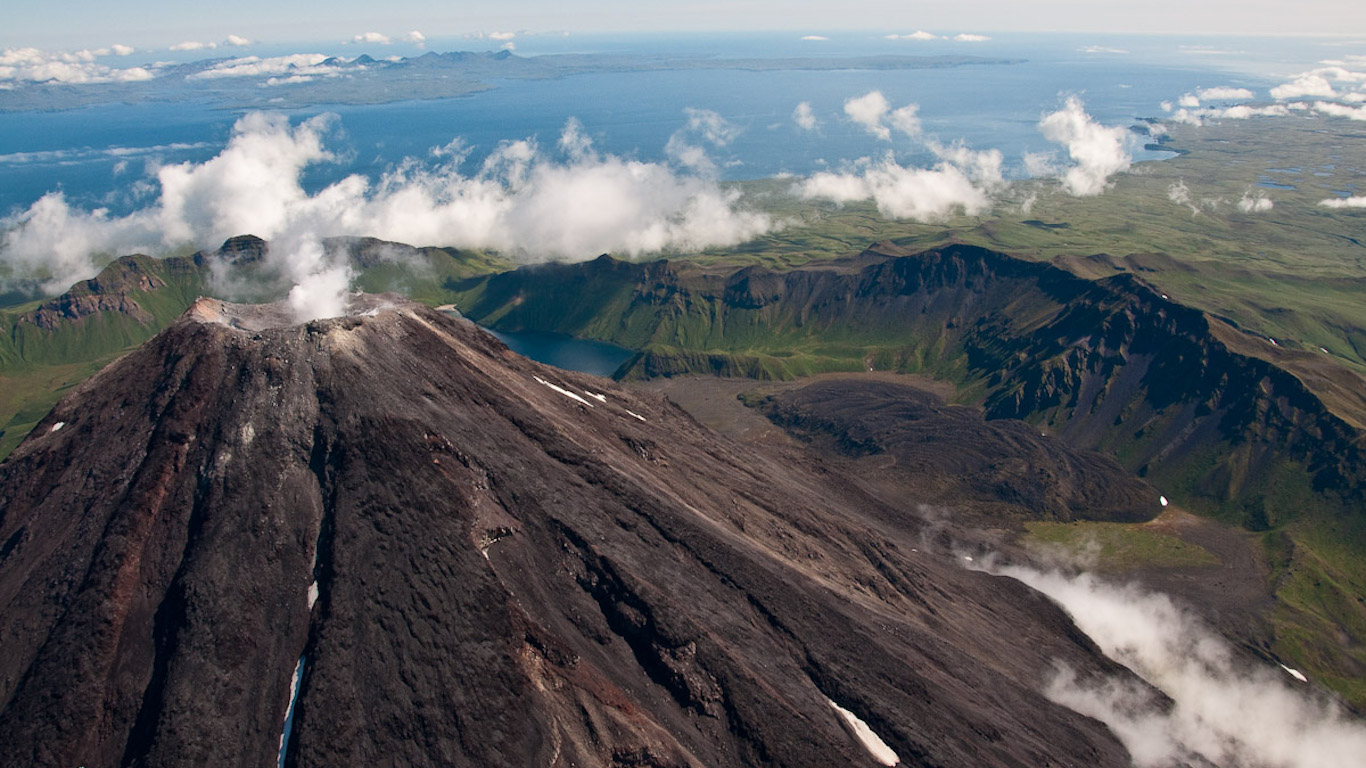
[in-text-ad]
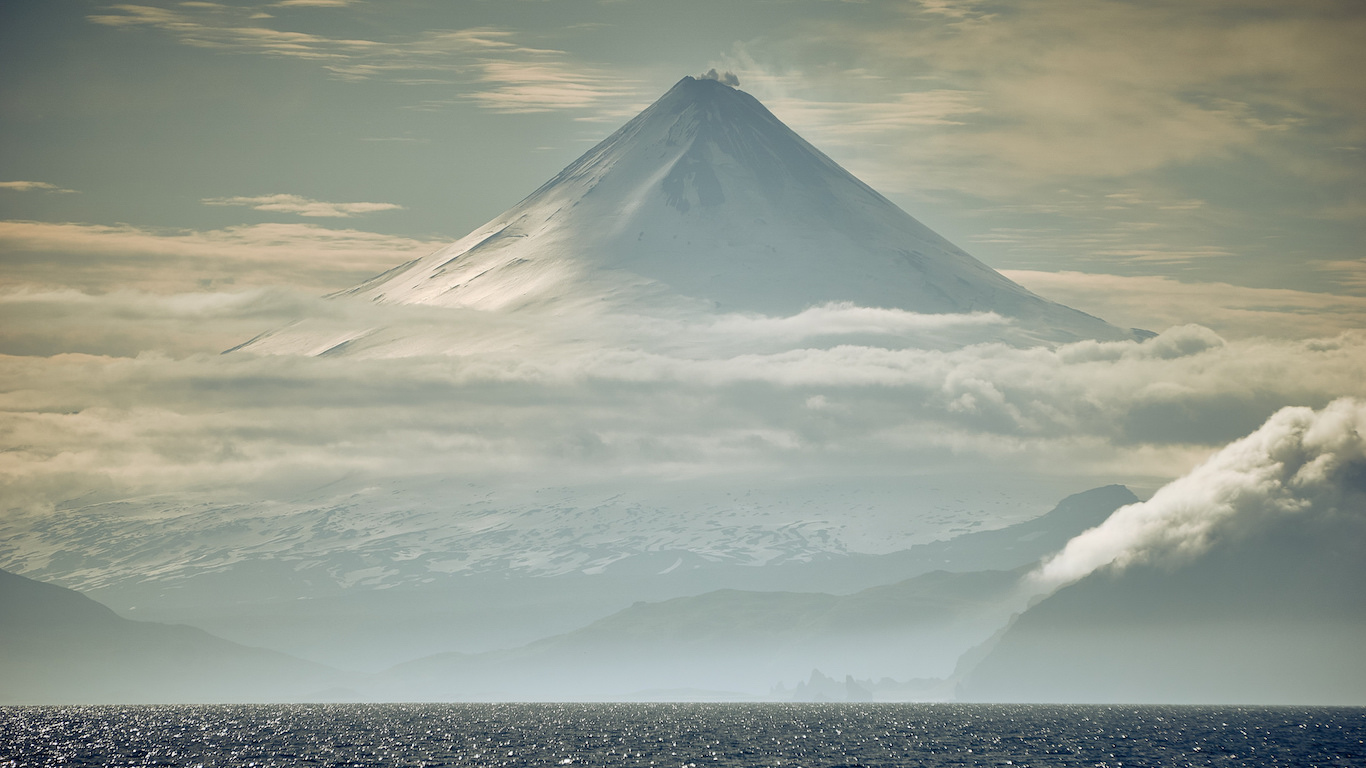
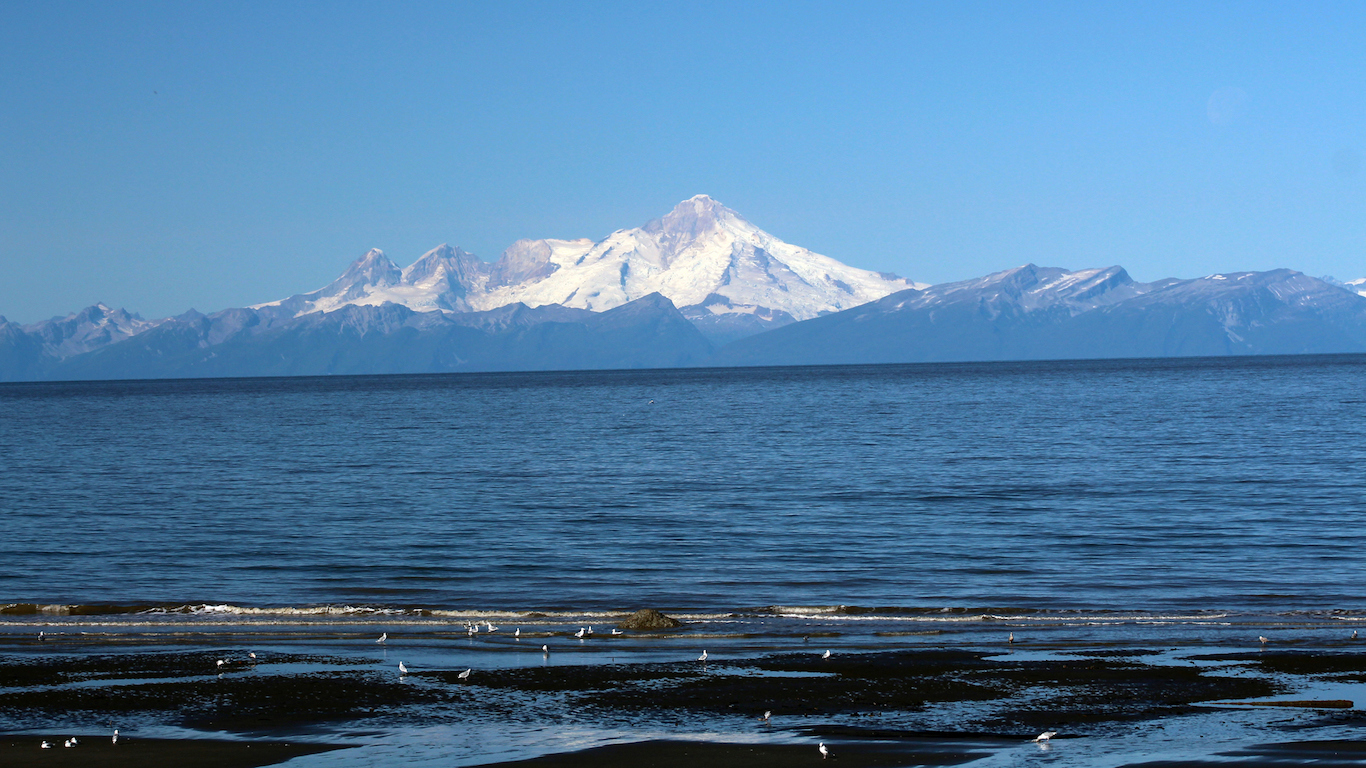
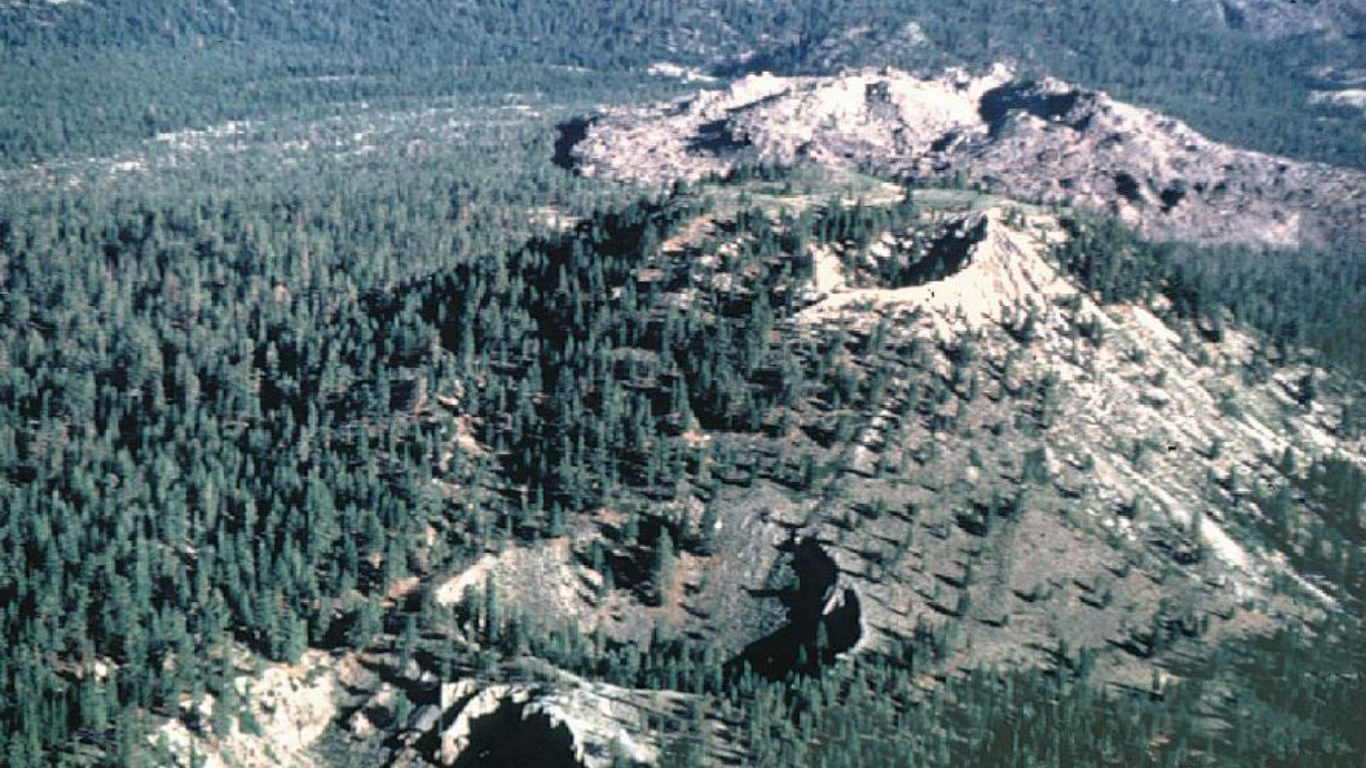
22. Inyo Craters, California
> Threat score: 106
> Last eruption year: 1380.
> Pop. within 30 km: 9,048
> Pop. within 100 km: 82,160
[in-text-ad-2]
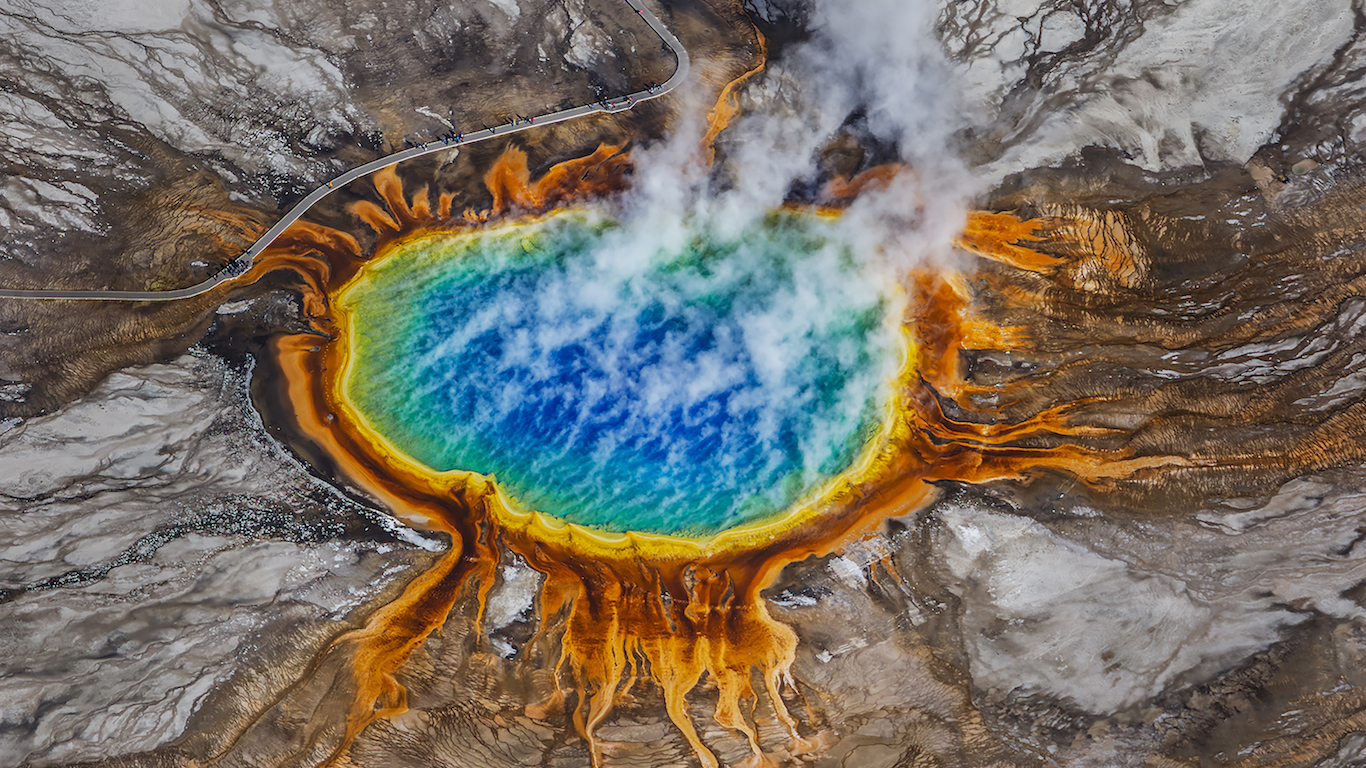
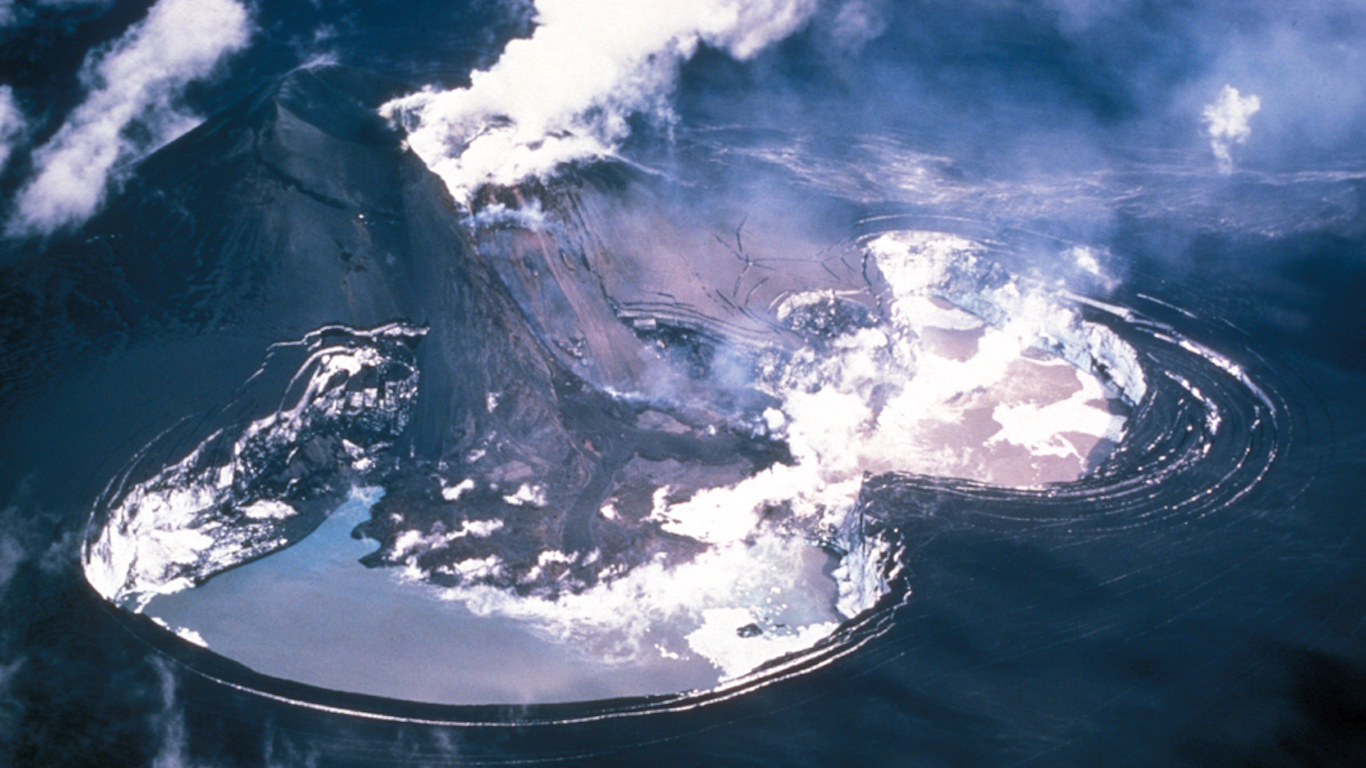
[in-text-ad]
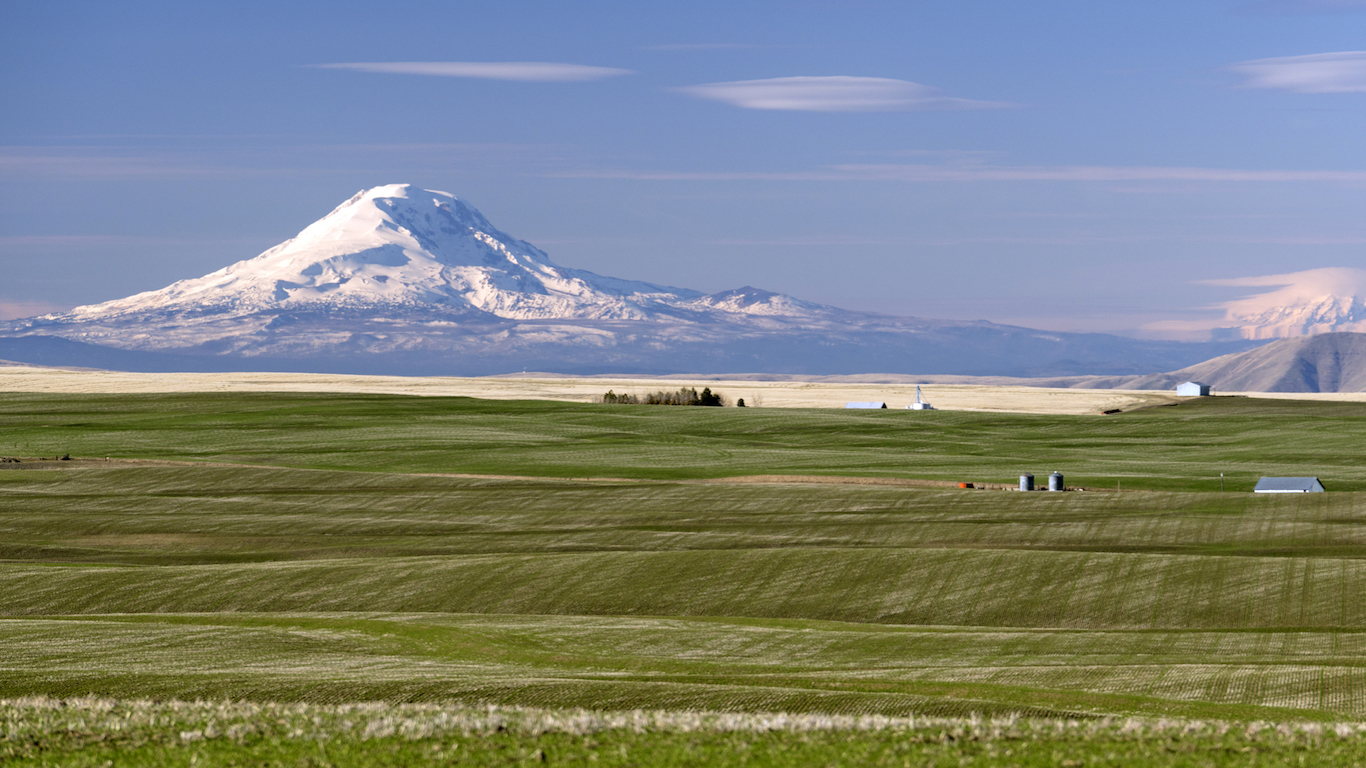
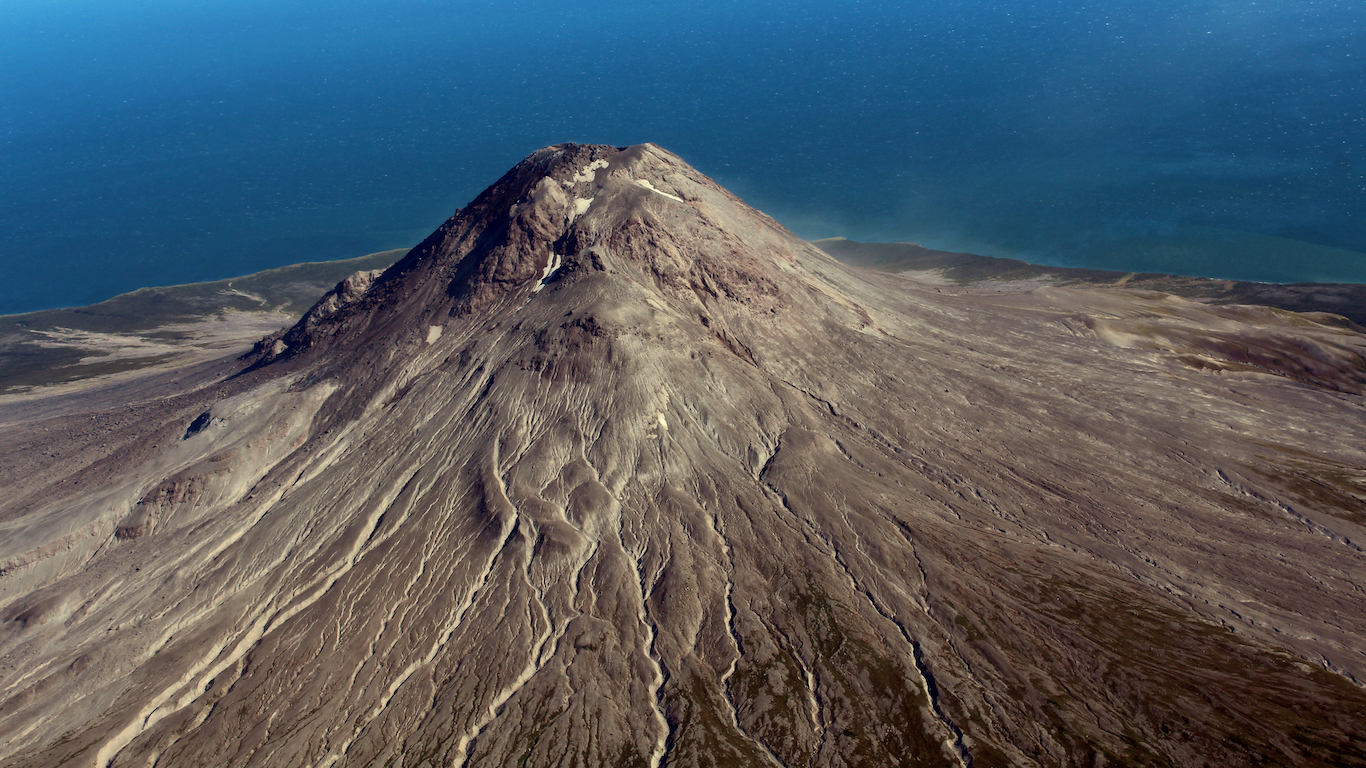
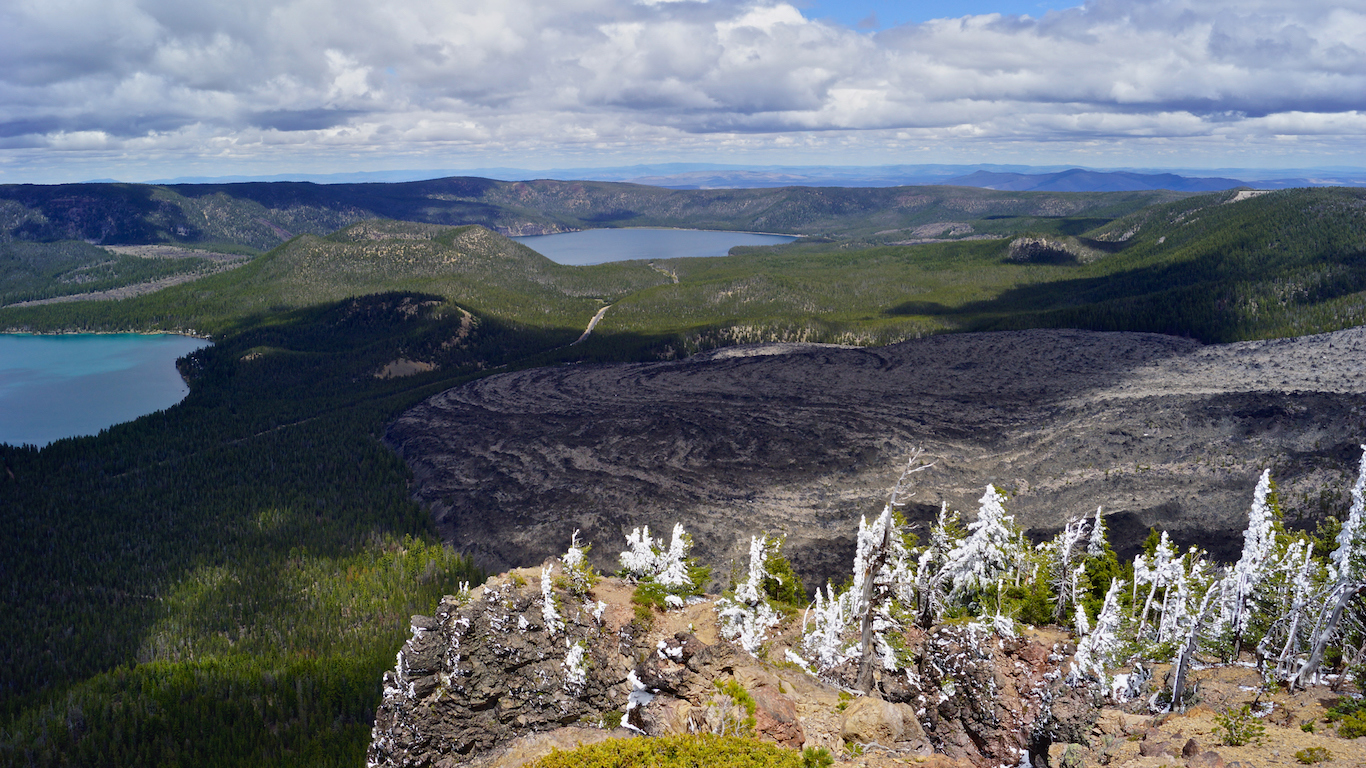
[in-text-ad-2]
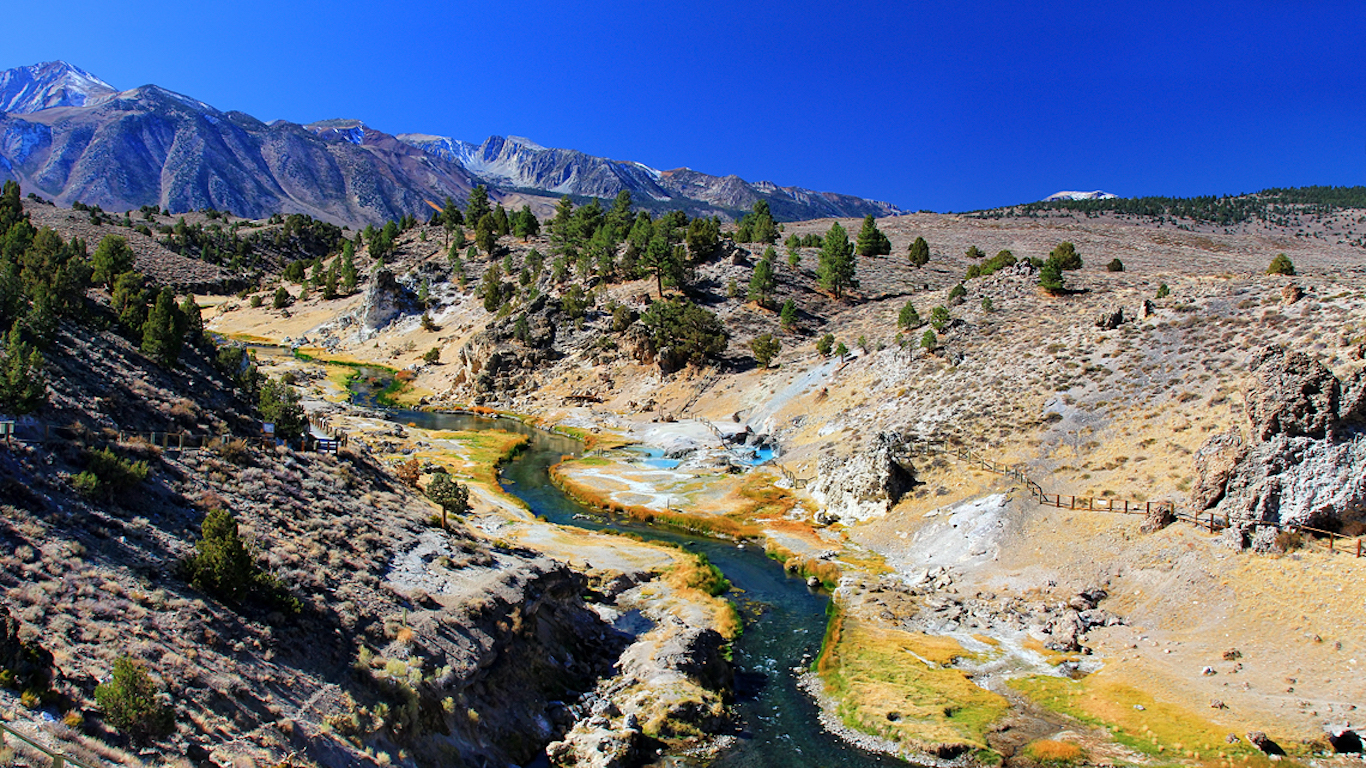
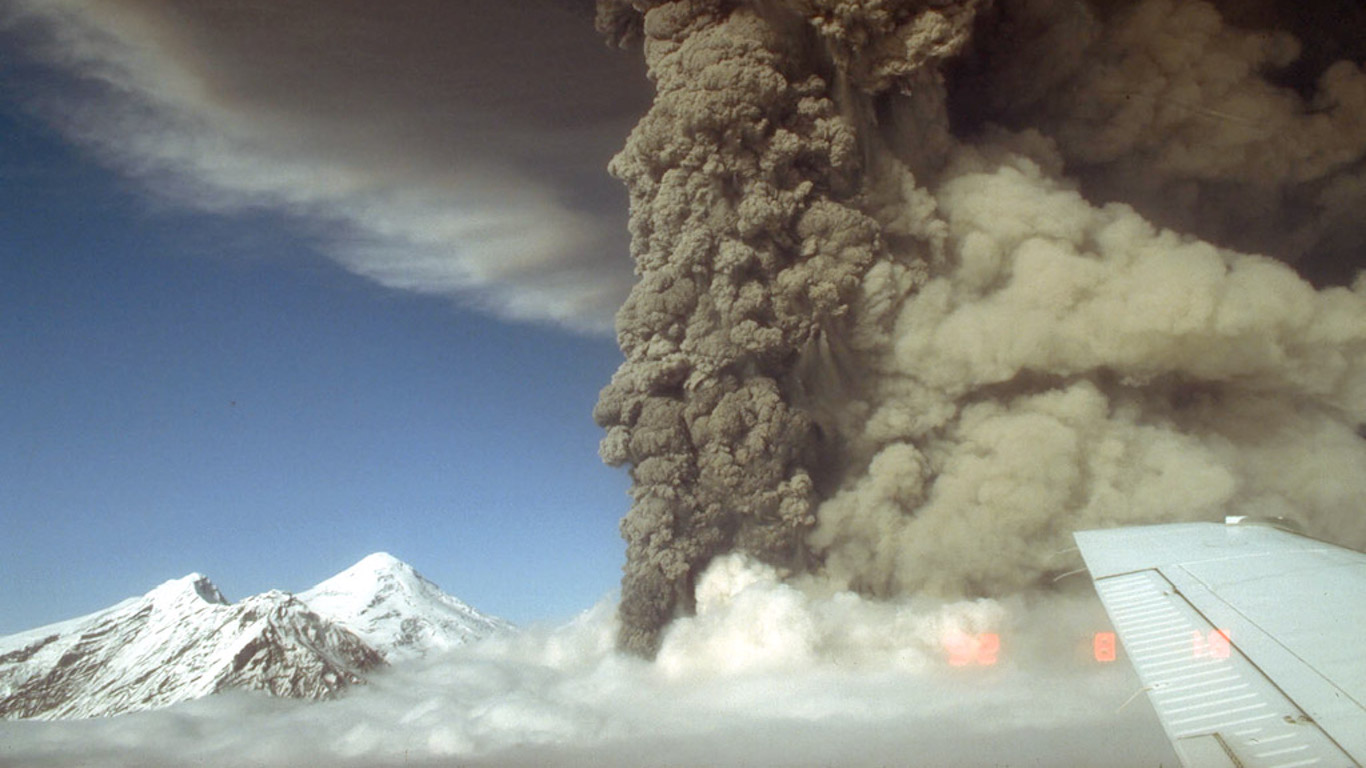
[in-text-ad]
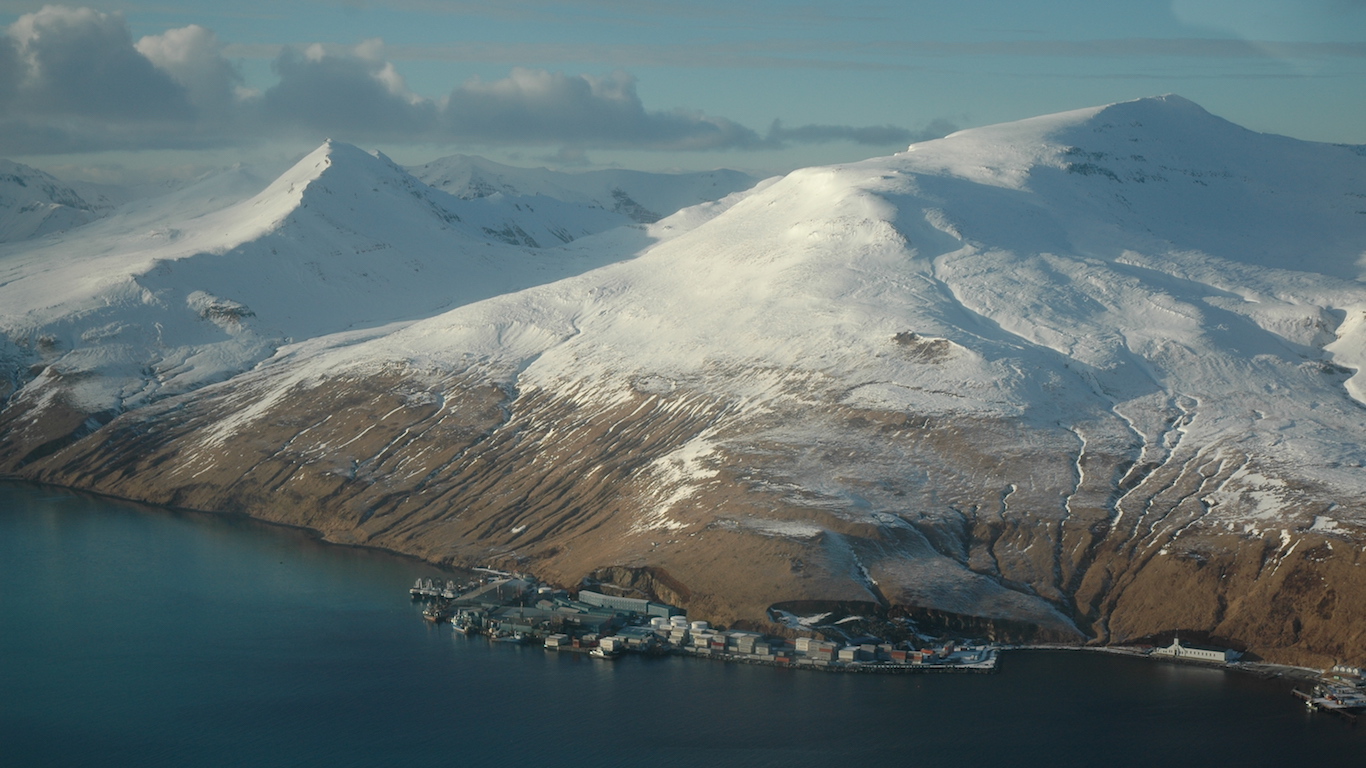
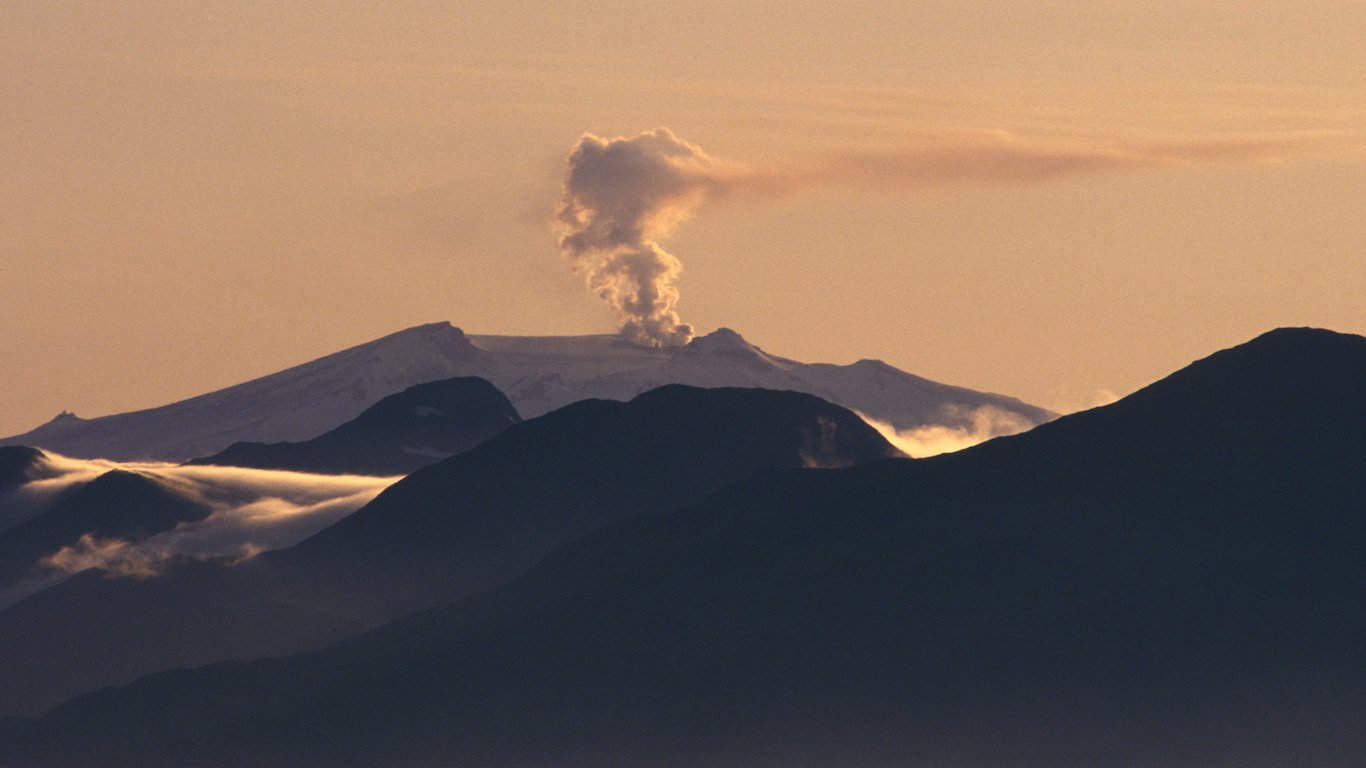
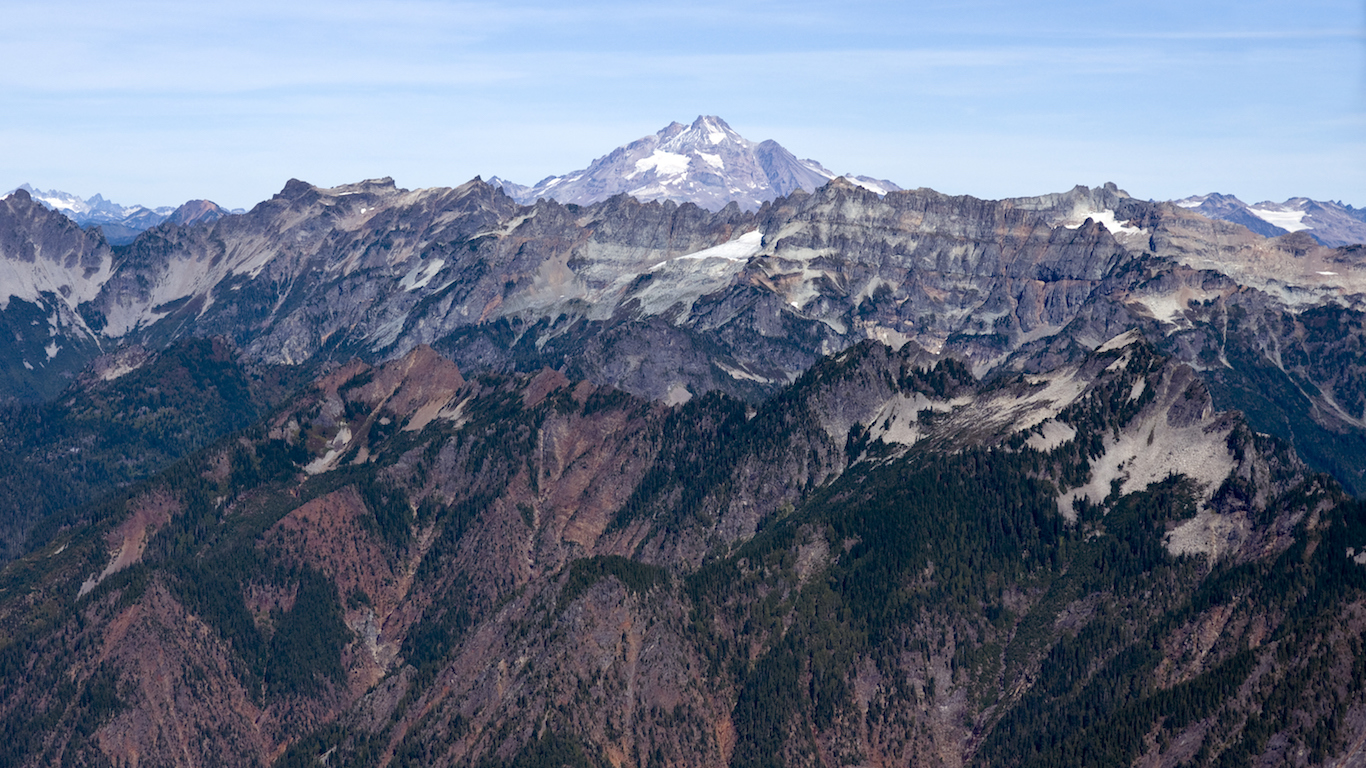
[in-text-ad-2]
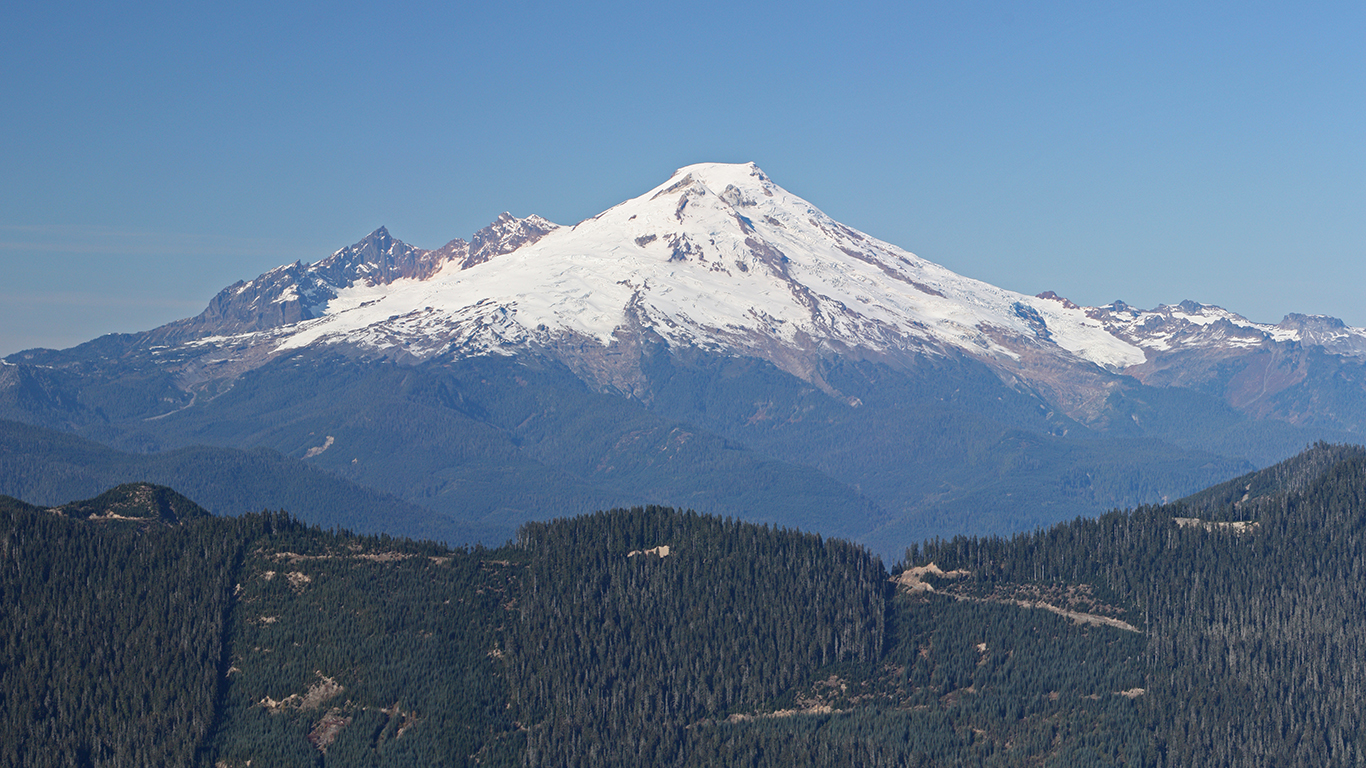
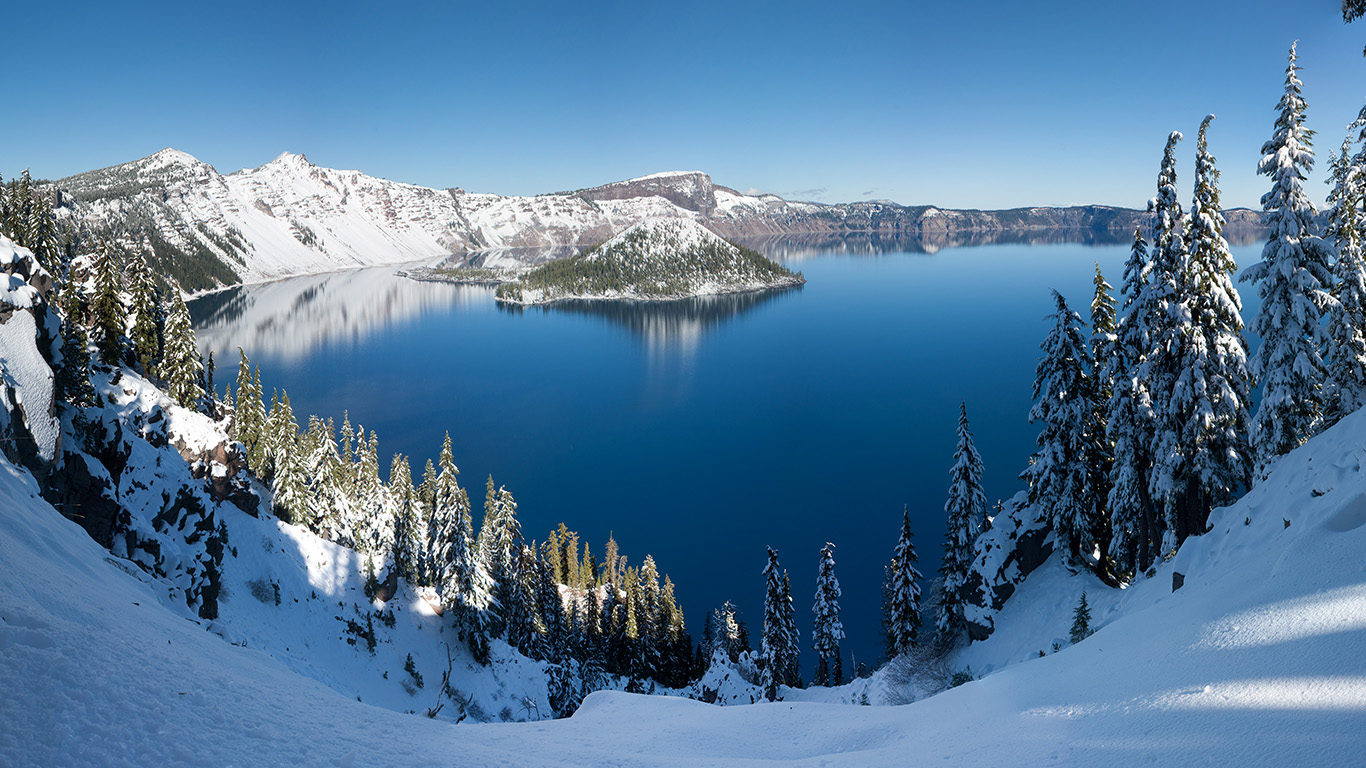
[in-text-ad]
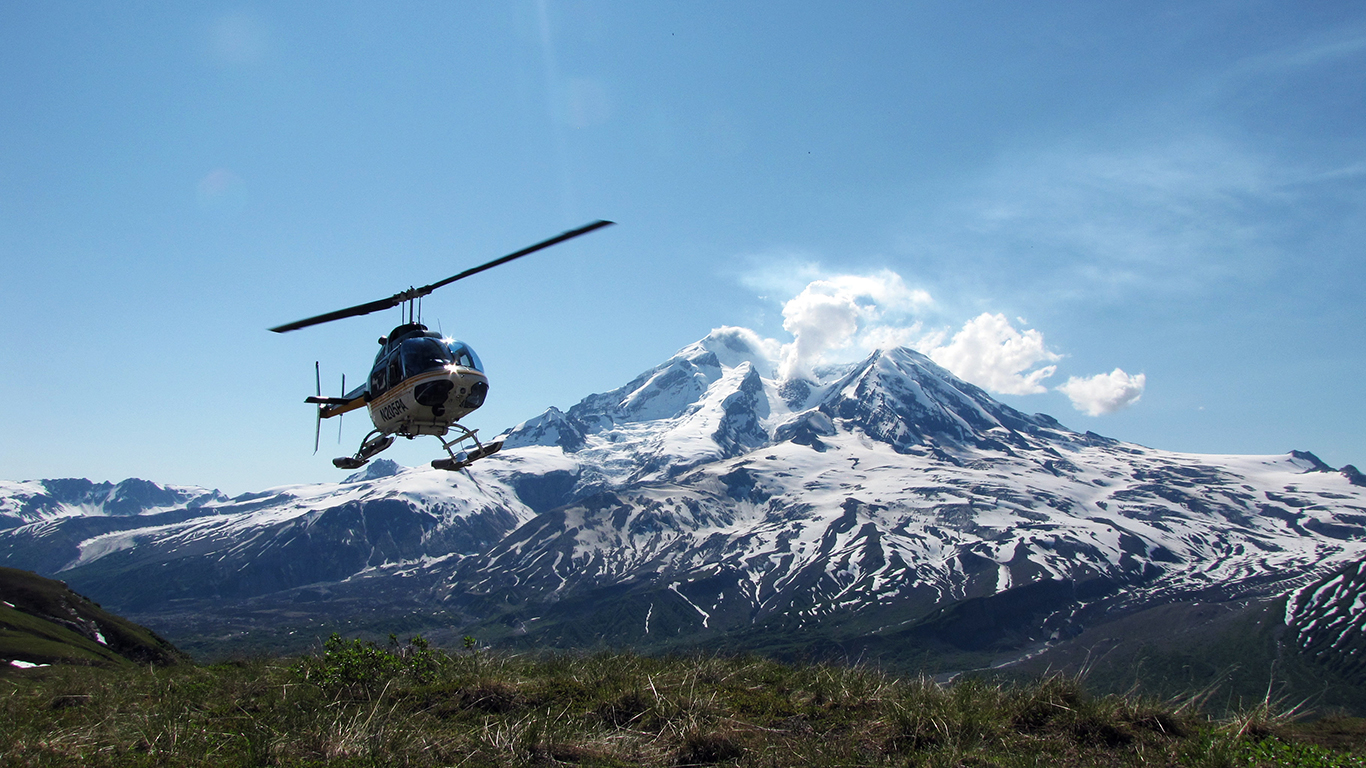
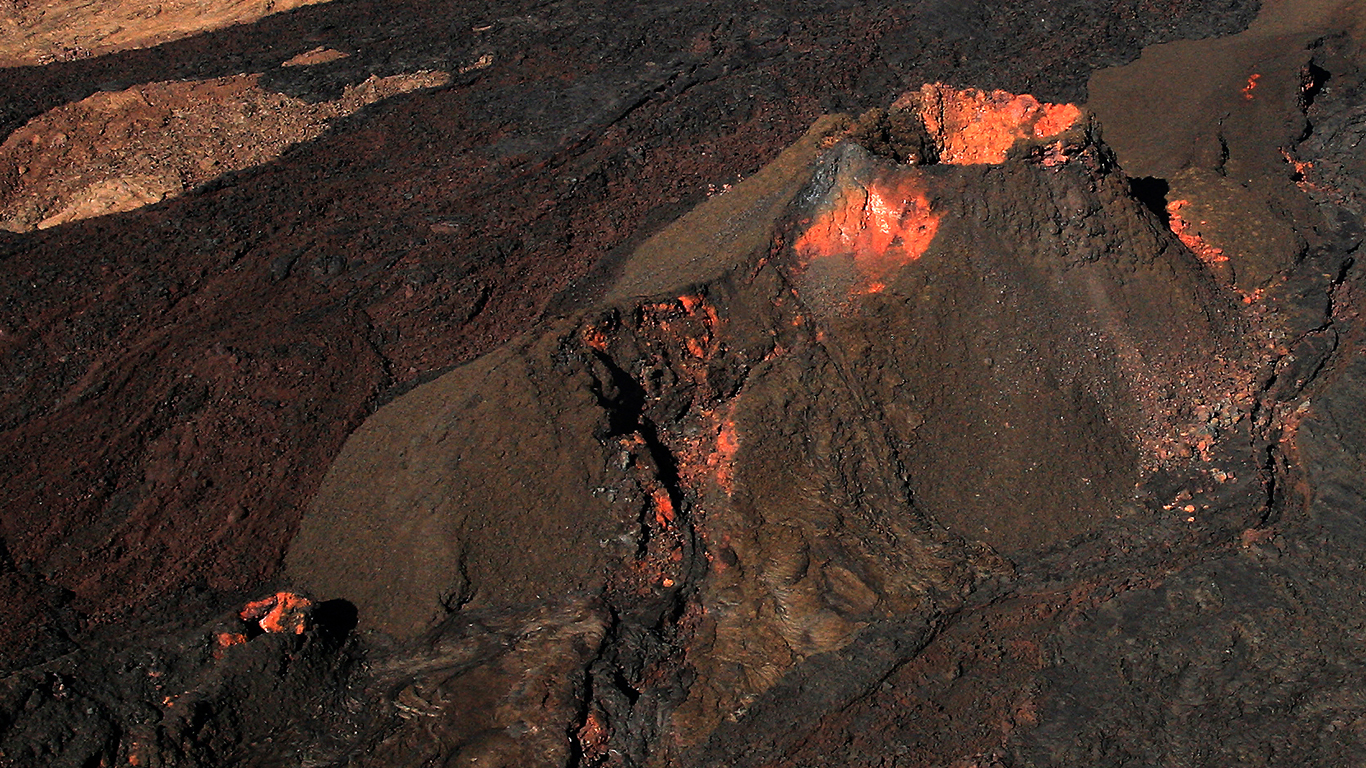
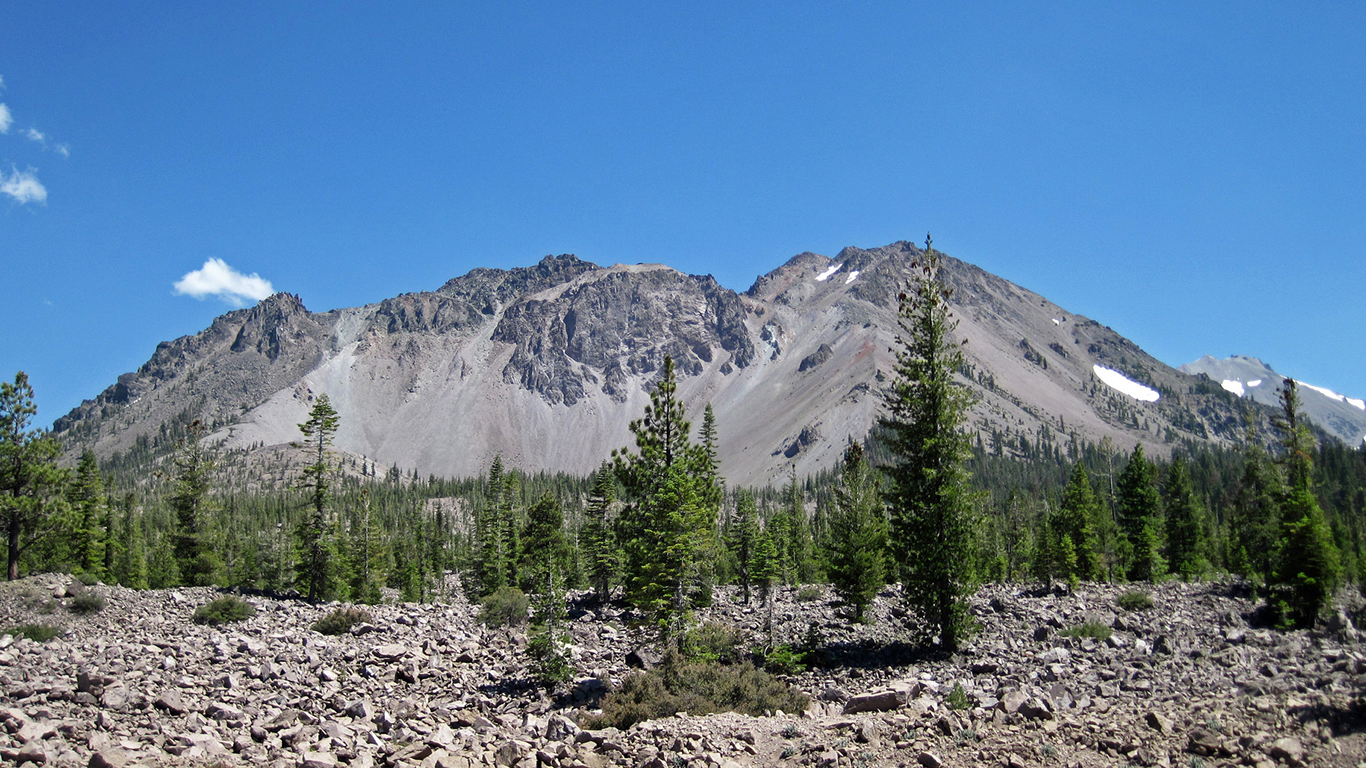
[in-text-ad-2]
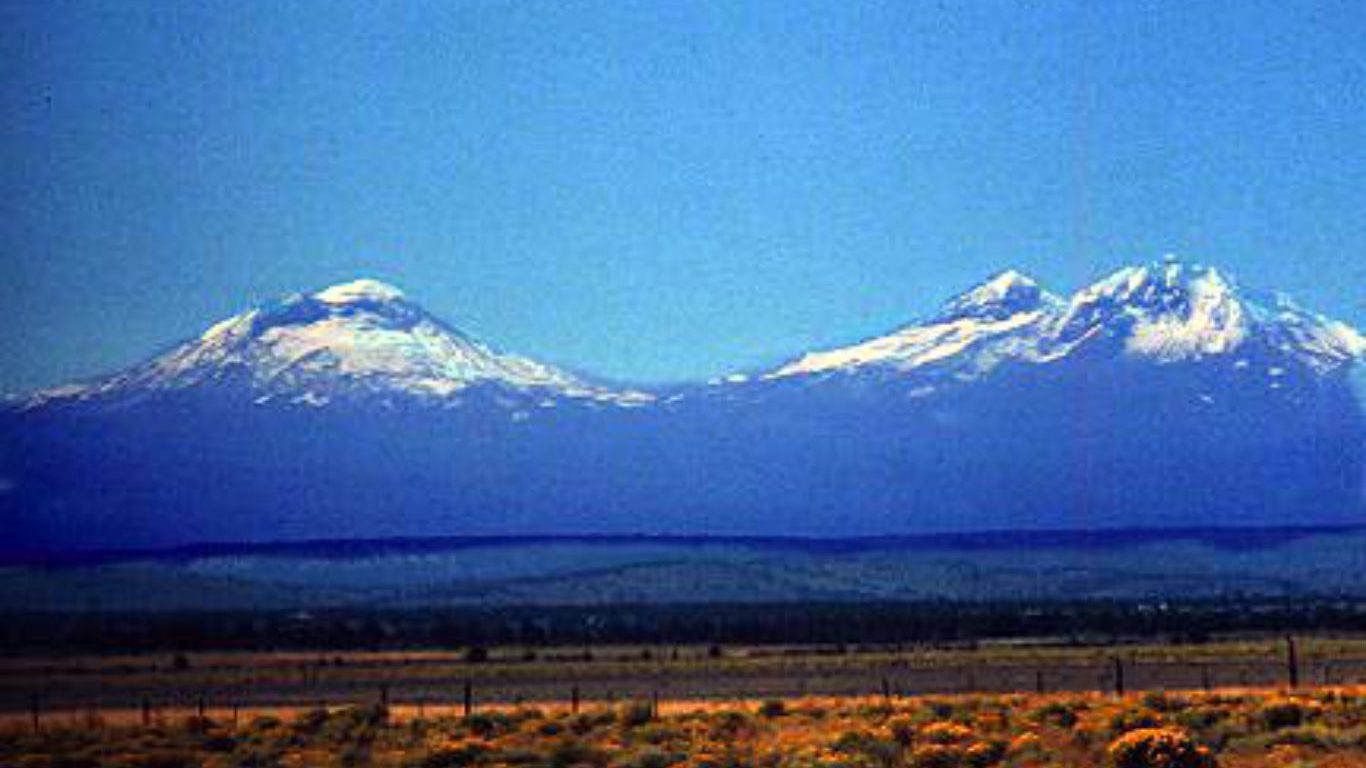
6. Three sisters, Oregon
> Threat score: 194
> Last eruption year: 440
> Pop. within 30 km: 5,672
> Pop. within 100 km: 279,885
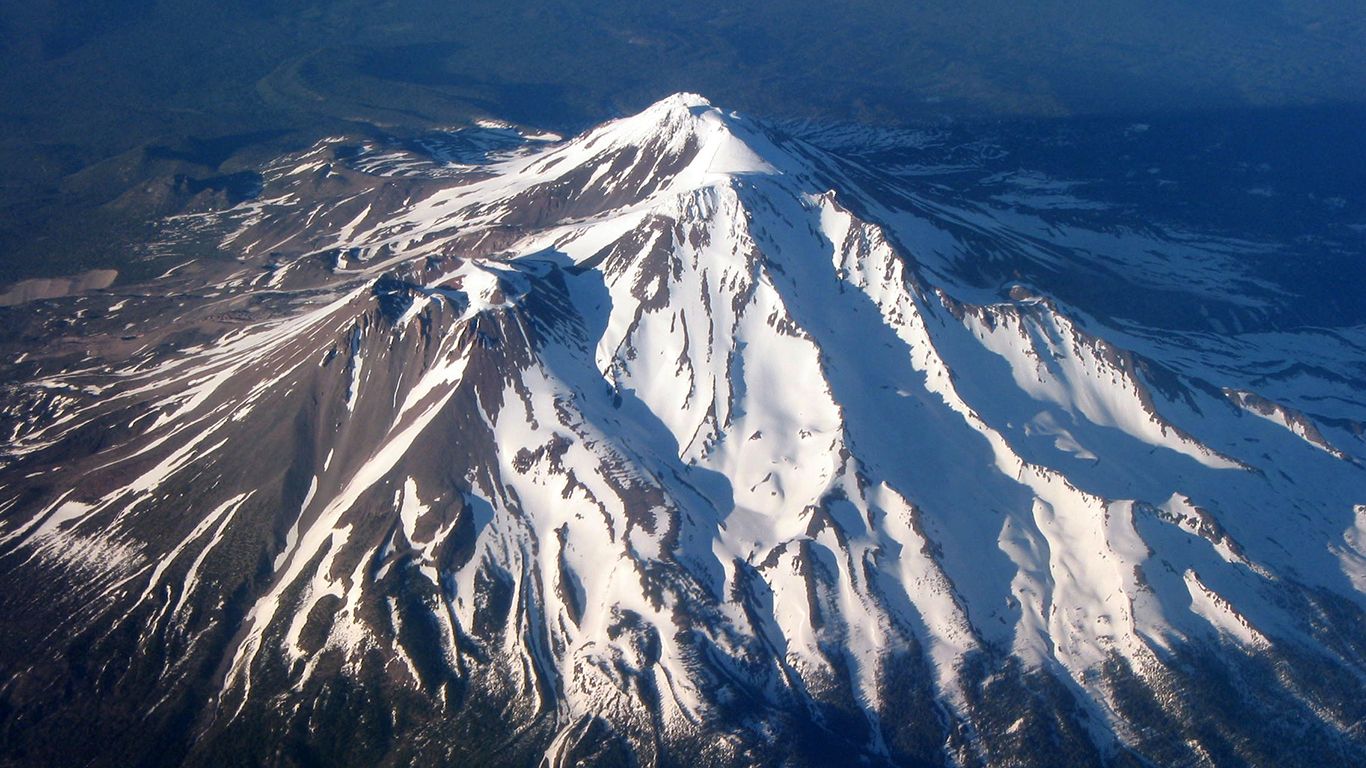
5. Shasta, California
> Threat score: 210
> Last eruption year: 1786
> Pop. within 30 km: 19,785
> Pop. within 100 km: 265,016
[in-text-ad]
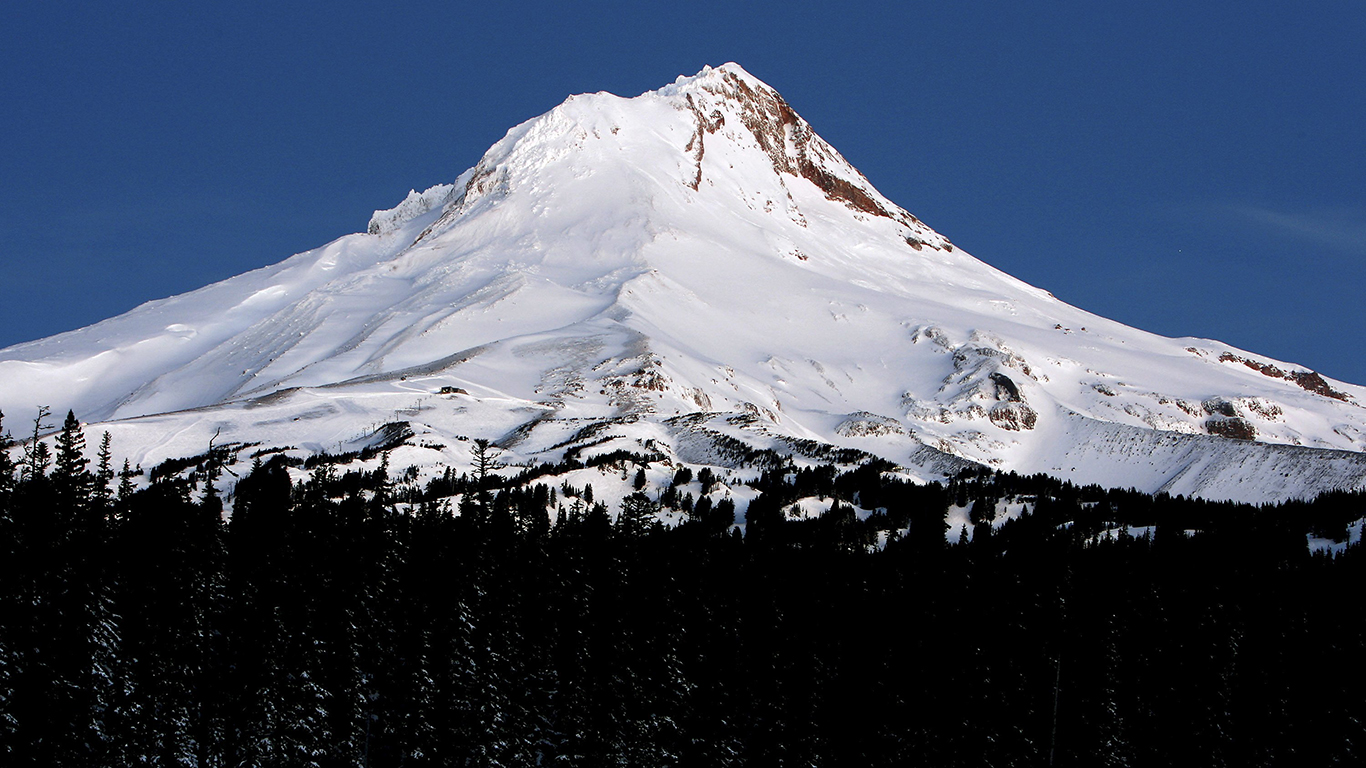
4. Hood, Oregon
> Threat score: 213
> Last eruption year: 1866
> Pop. within 30 km: 9,721
> Pop. within 100 km: 2,067,520
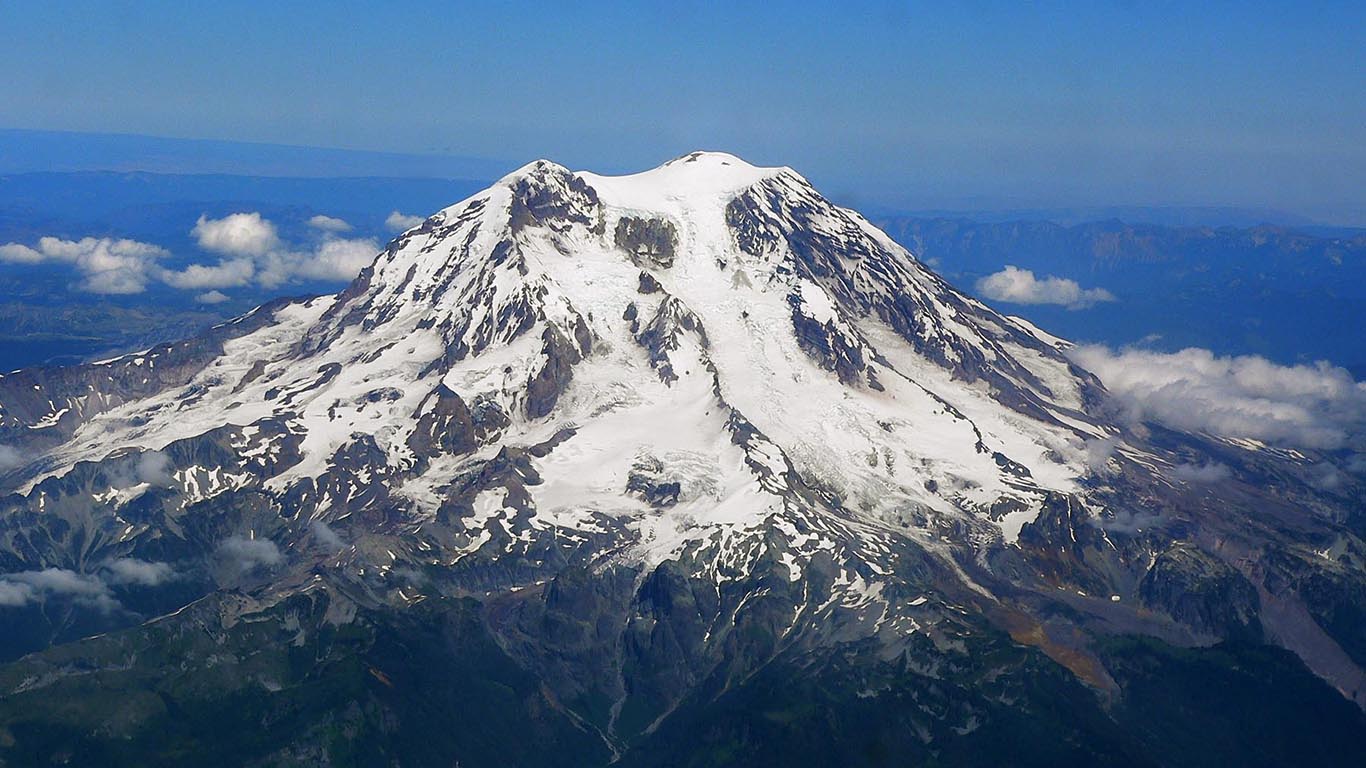
3. Rainier, Washington
> Threat score: 244
> Last eruption year: 1450
> Pop. within 30 km: 3,187
> Pop. within 100 km: 2,667,609
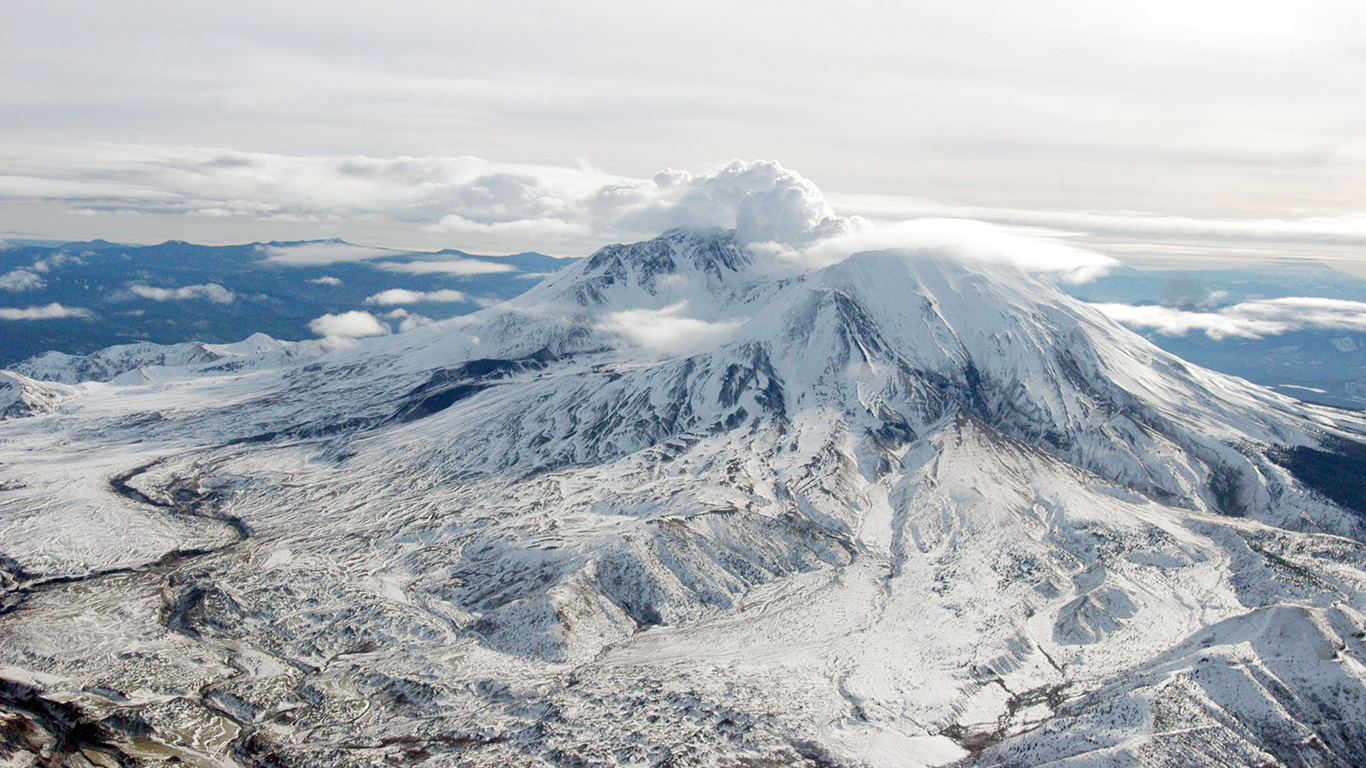
2. St. Helens, Washington
> Threat score: 267
> Last eruption year: 2008
> Pop. within 30 km: 2,221
> Pop. within 100 km: 2,173,101
[in-text-ad-2]
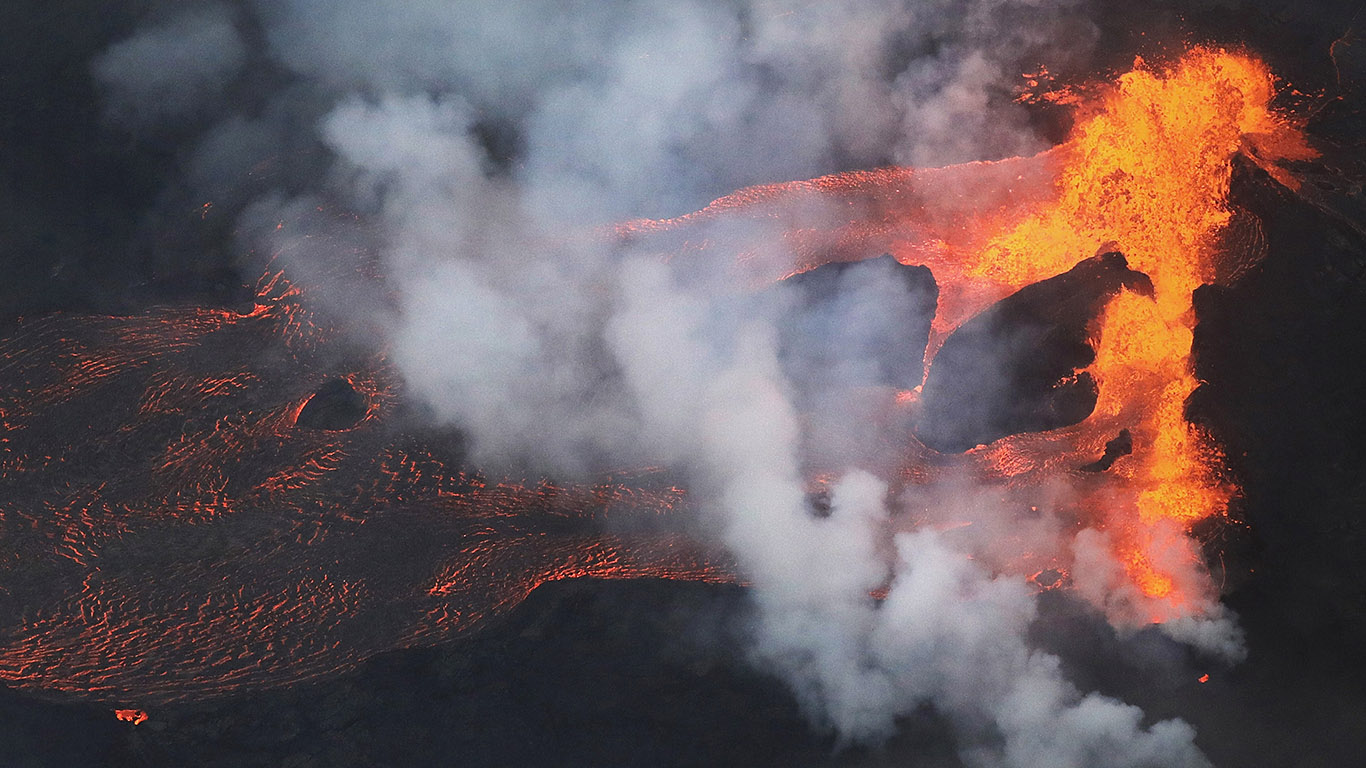
1. Kilauea, Hawaii
> Threat score: 324
> Last eruption year: 2018
> Pop. within 30 km: 8,495
> Pop. within 100 km: 169,550
Detailed Findings & Methodology
Worldwide, because of its disproportionately high number of active volcanoes and high population density, Indonesia has by far the highest volcanic threat level of all countries. Many of its volcanoes are along boundaries of tectonic plates. There are plenty of active volcanoes in the United States as well.
Twenty-six of the 50 American volcanoes listed are in Alaska, seven are in California, five are in Washington, and there are four in each Oregon and the Northern Mariana Islands. One, Yellowstone, is in Wyoming.
Apart from the recent eruption in Hawaii, the most recent eruptions in the United States were in Alaska. Pavlof, Veniaminof, and Shishaldin erupted in 2016, 2015, and 2013, respectively. But as these volcanoes are located along the remote and sparsely populated Aleutian Islands, eruptions there are less threatening than those that might occur in many other parts of the country.
The last eruption in California was 100 years ago — relatively recent by geological standards. The state is home to the iconic cone of Mount Shasta, the lava domes of the Mono-Inyo Craters, and to frequent steam explosions of Ubehebe Craters.
In addition to land damage from lava flows and health risks from toxic gas, other consequences include obstruction to air travel. Between 1953 and 2010, there were approximately 80 incidents involving aircraft and volcanic ash that resulted in damage to the aircraft. Of these encounters, nine resulted in engine shutdown during flight.
The timeline of a volcano is quite long. According to geological studies, about 600 volcanoes have erupted at some point since the year 1500, and about 866 volcanoes have a record spanning 10,000 years.
Volcanoes are considered to be either extinct, dormant, or active. Because most volcanoes alternate between long periods of rest and short bursts of activity, it is not uncommon for volcanoes to unexpectedly switch between these categories. For example, before the 2010 volcanic eruption in Indonesia, Sinabung was considered dormant.
Both a volcano’s eruption and the aftermath can last a very long time. In 1943, for example, the cornfields of the Mexican state of Michoacan broke open and a new volcano, Paricutin, was born. That eruption lasted nine years. As Mandeville explained, much of the devastation resulting from volcanic eruptions can be permanent. Farmland engulfed in lava flow cannot be reclaimed for decades.
To identify America’s 50 most dangerous volcanoes, 24/7 Wall St. reviewed threat scores from the U.S. Geological Survey report, “An Assessment of Volcanic Threat and Monitoring Capabilities in the United States: Framework for a National Volcano Early Warning System.” Scores are as of 2005, as the threat levels of hazardous volcanoes are very unlikely to have changed since. The last eruption year as well as the population within 30 kilometers and 100 kilometers were obtained from the Smithsonian Institution’s National Museum of Natural History Global Volcanism Program. When unavailable, we listed the population of the town nearest to the volcano.
The thought of burdening your family with a financial disaster is most Americans’ nightmare. However, recent studies show that over 100 million Americans still don’t have proper life insurance in the event they pass away.
Life insurance can bring peace of mind – ensuring your loved ones are safeguarded against unforeseen expenses and debts. With premiums often lower than expected and a variety of plans tailored to different life stages and health conditions, securing a policy is more accessible than ever.
A quick, no-obligation quote can provide valuable insight into what’s available and what might best suit your family’s needs. Life insurance is a simple step you can take today to help secure peace of mind for your loved ones tomorrow.
Click here to learn how to get a quote in just a few minutes.
Thank you for reading! Have some feedback for us?
Contact the 24/7 Wall St. editorial team.